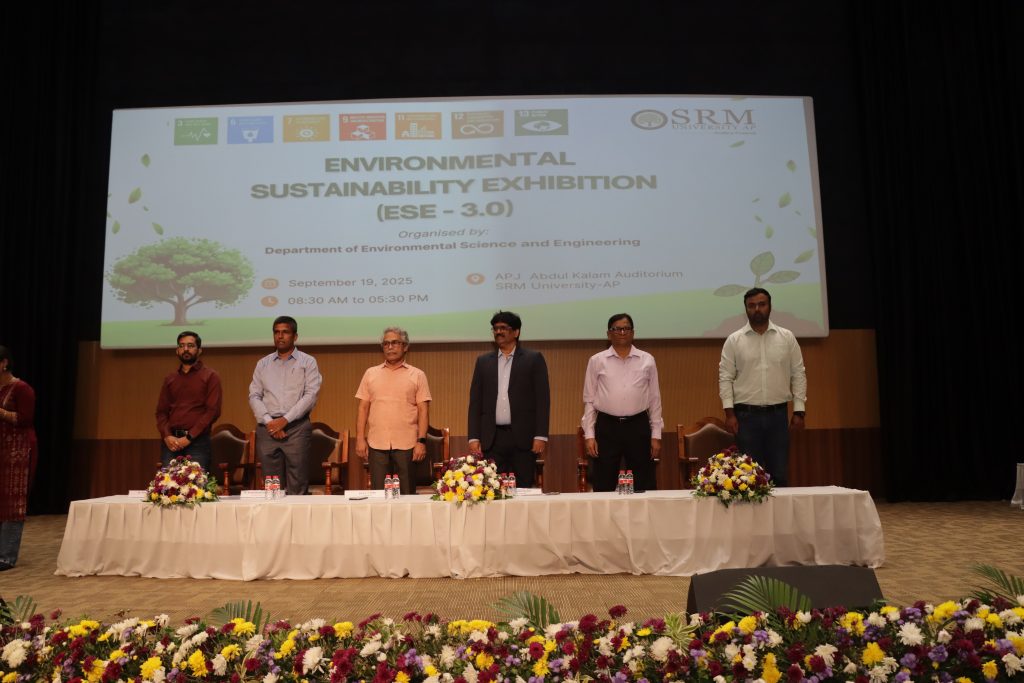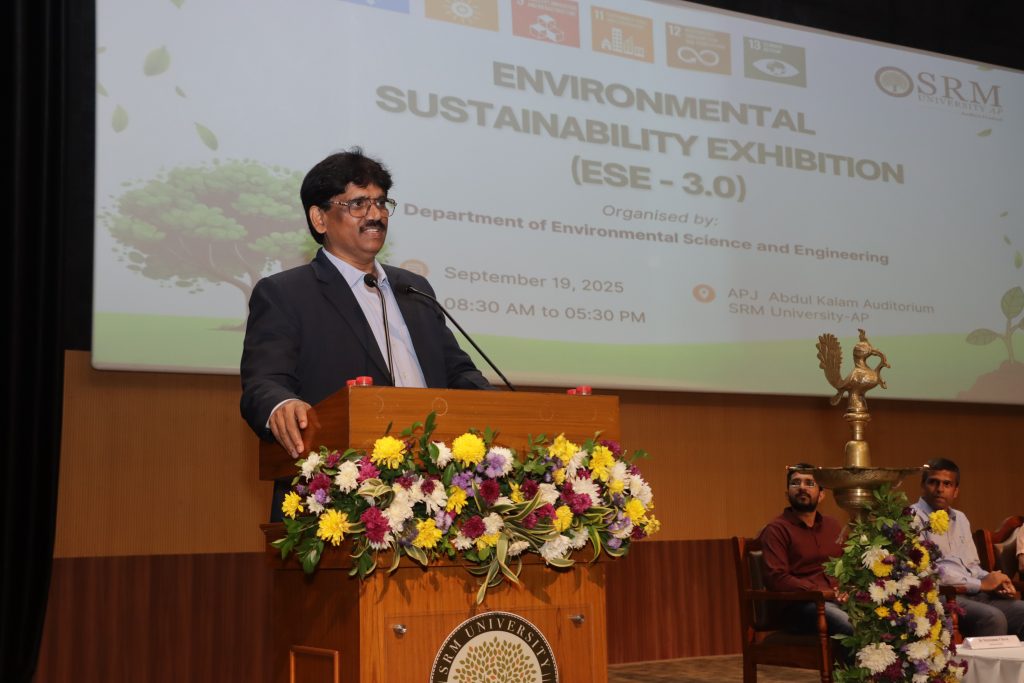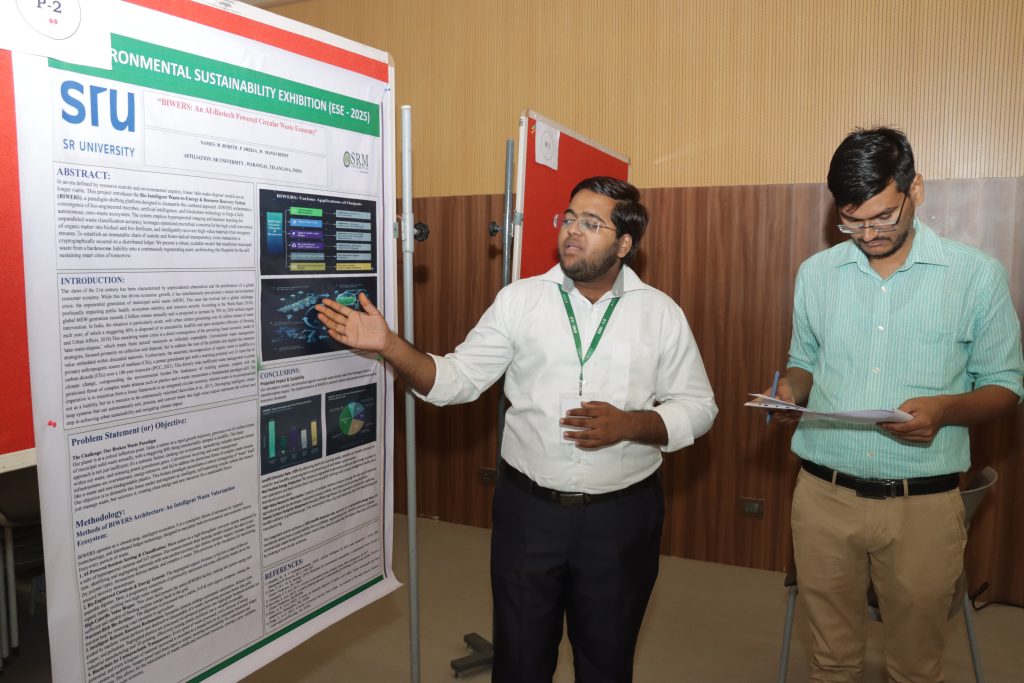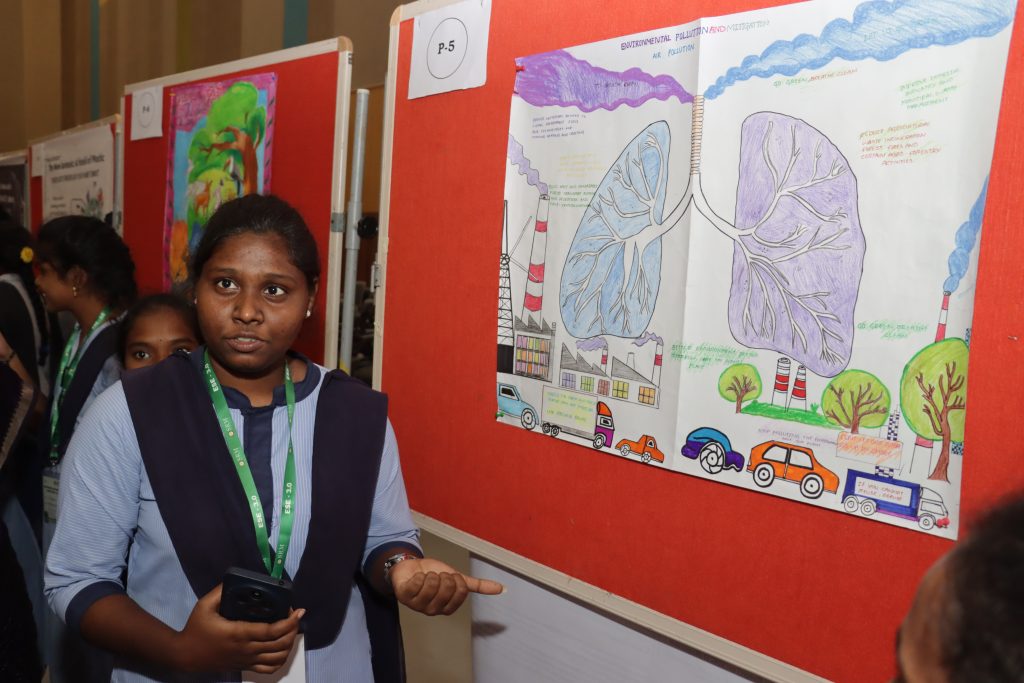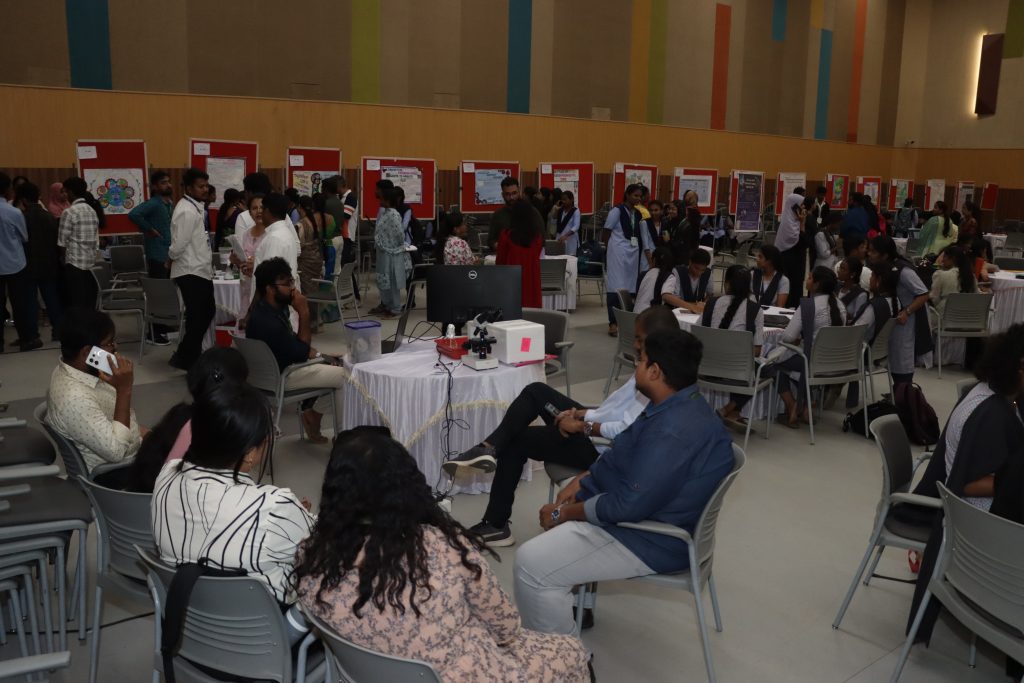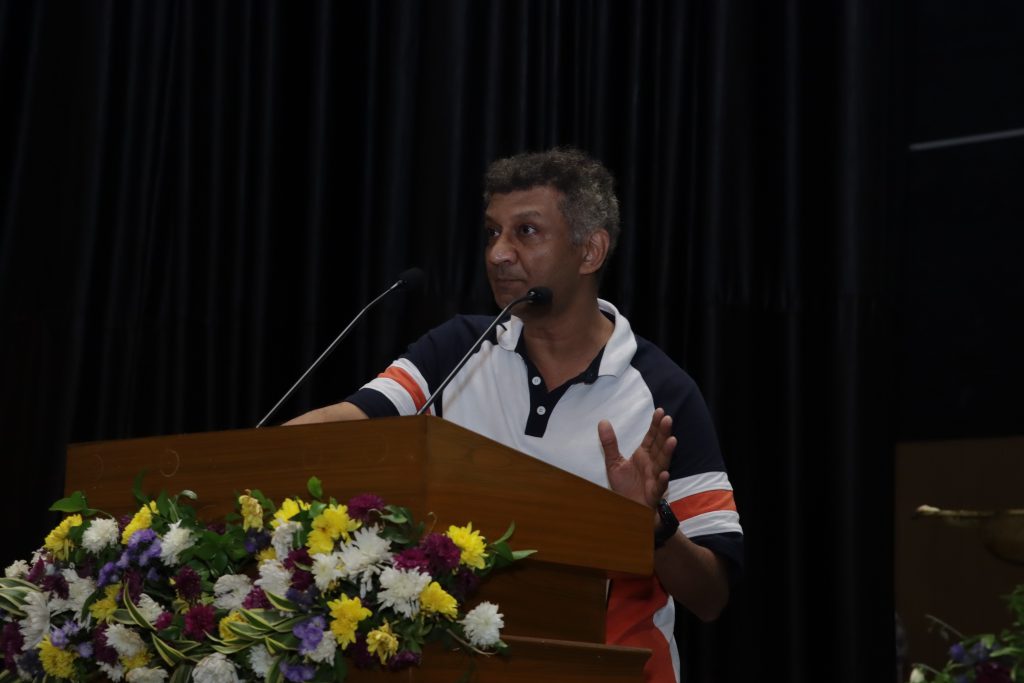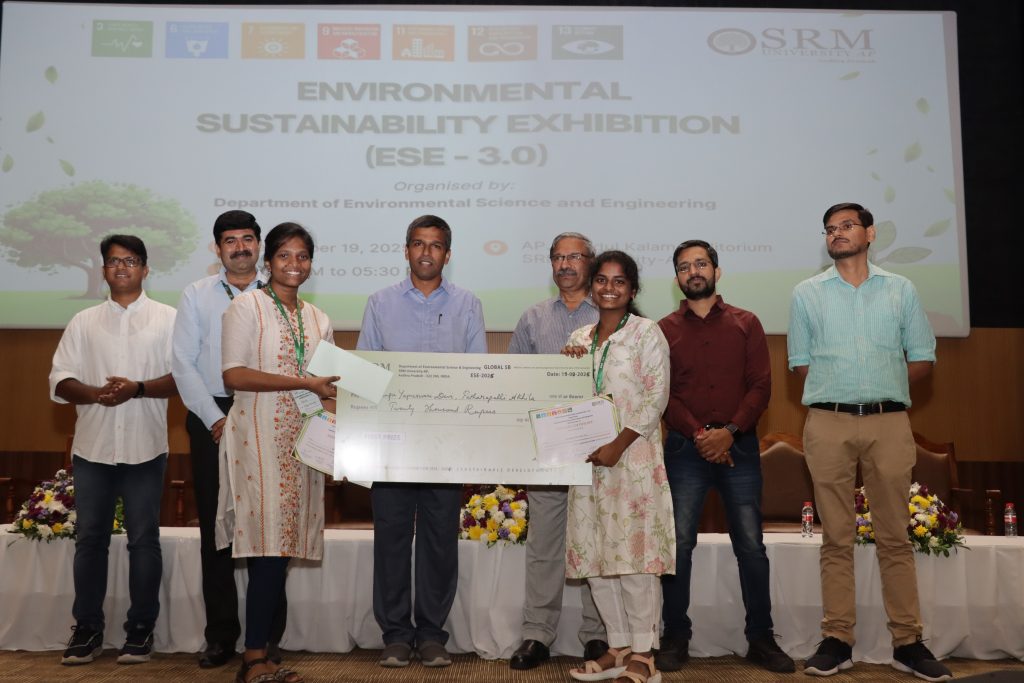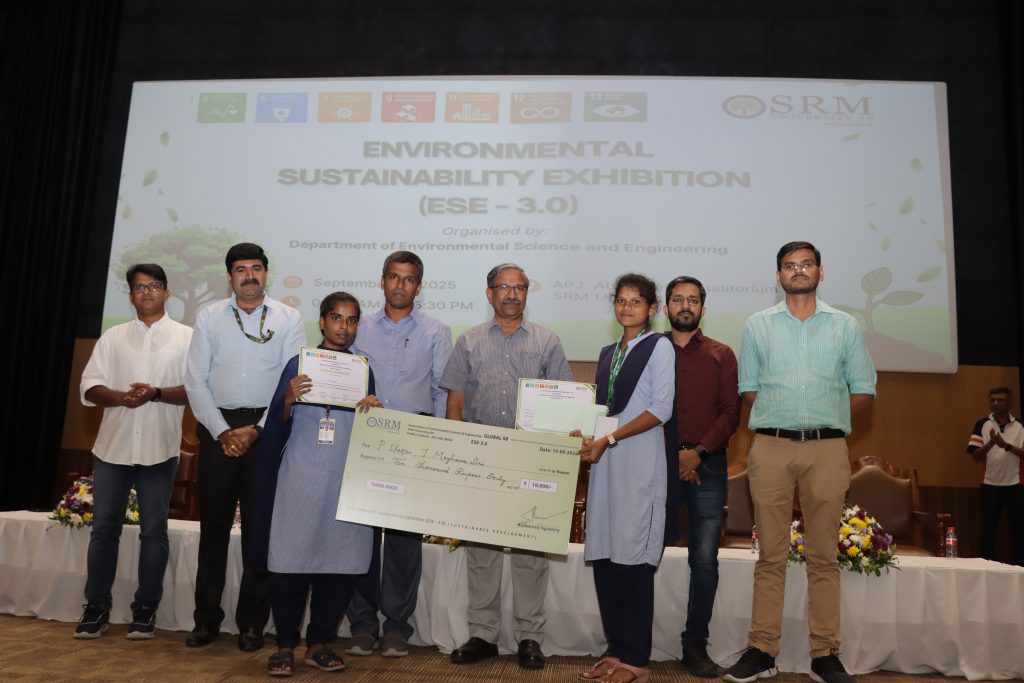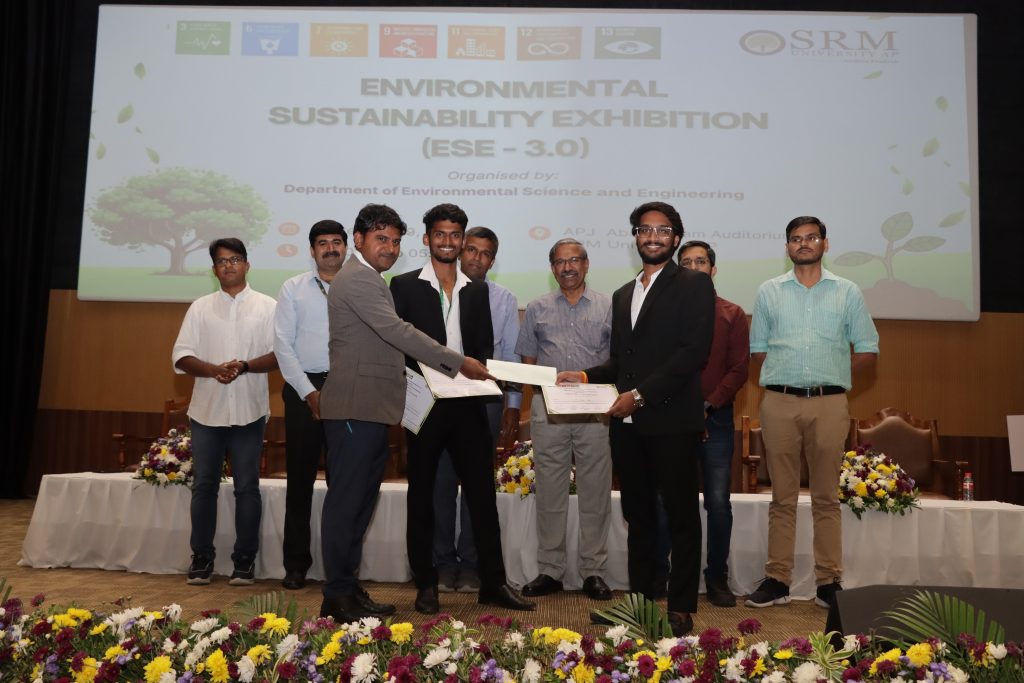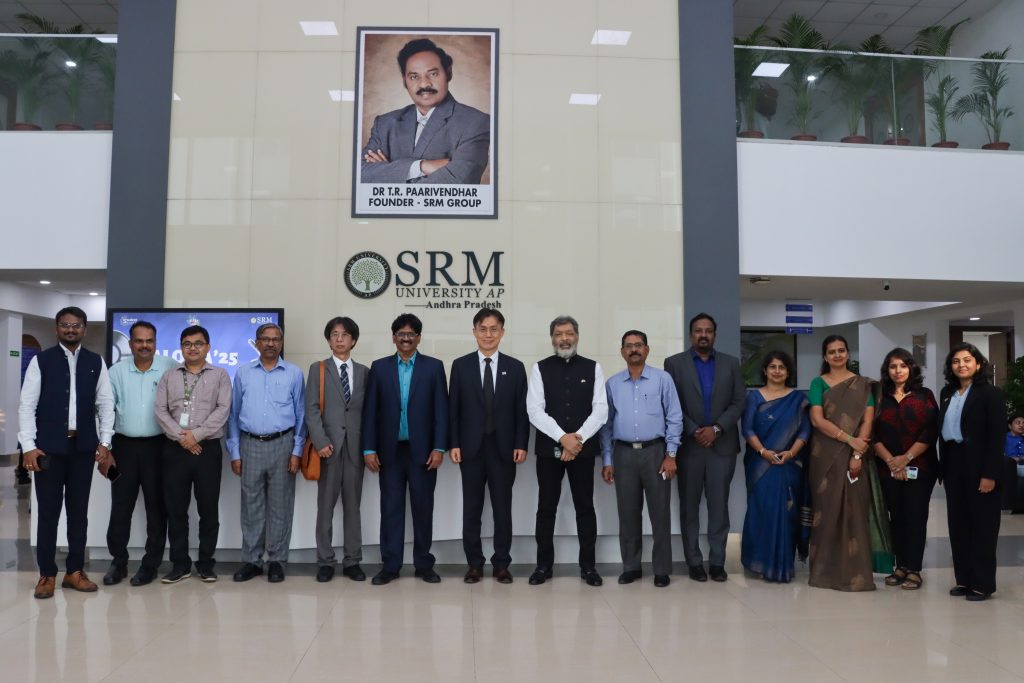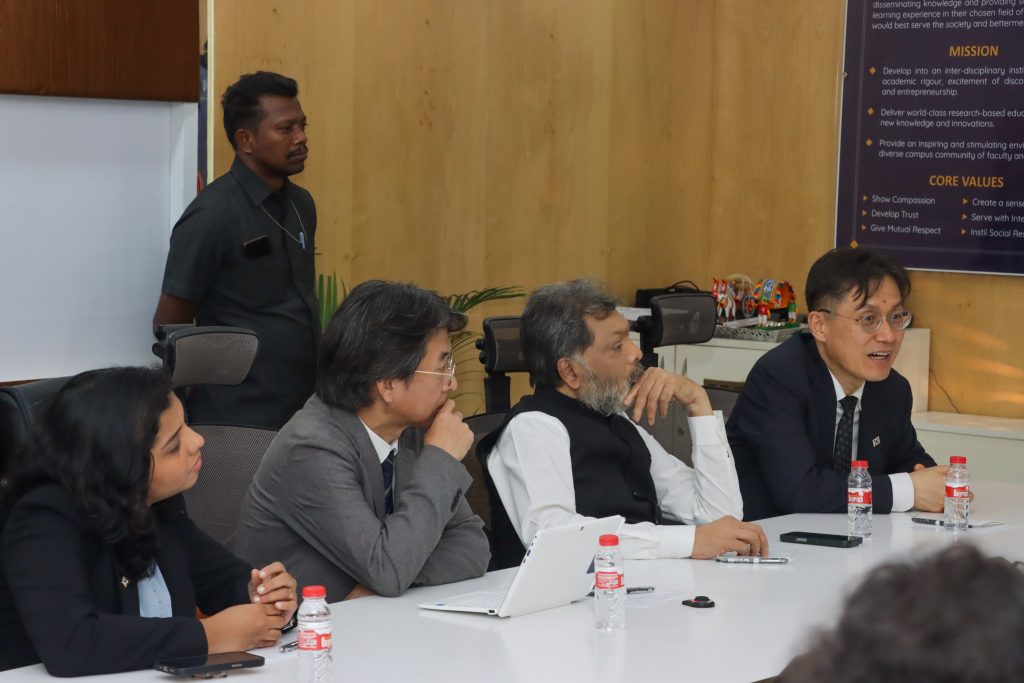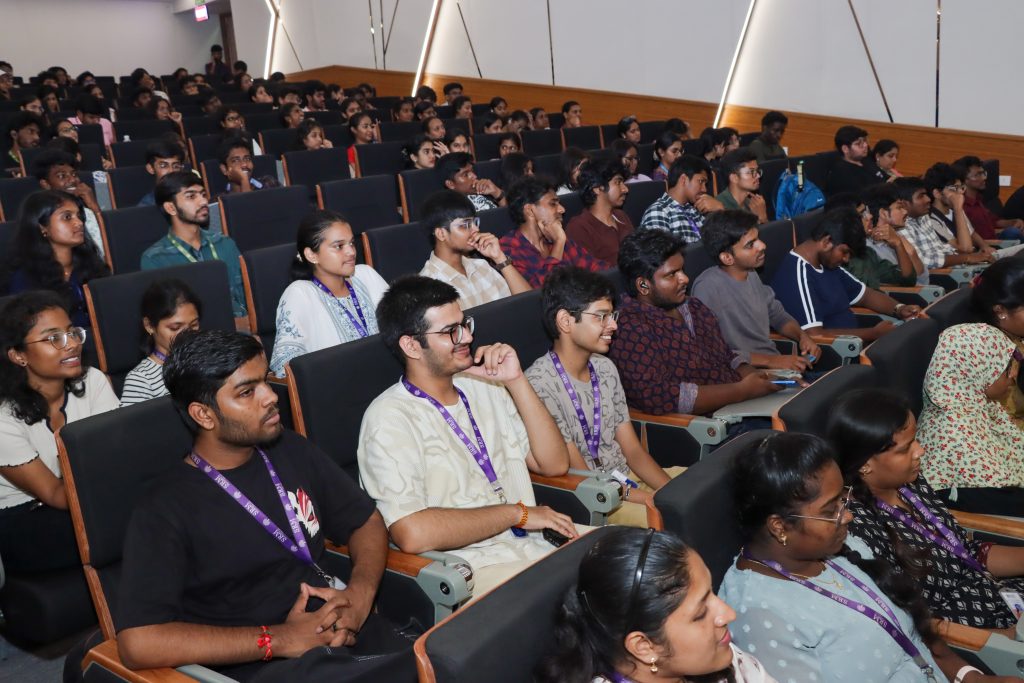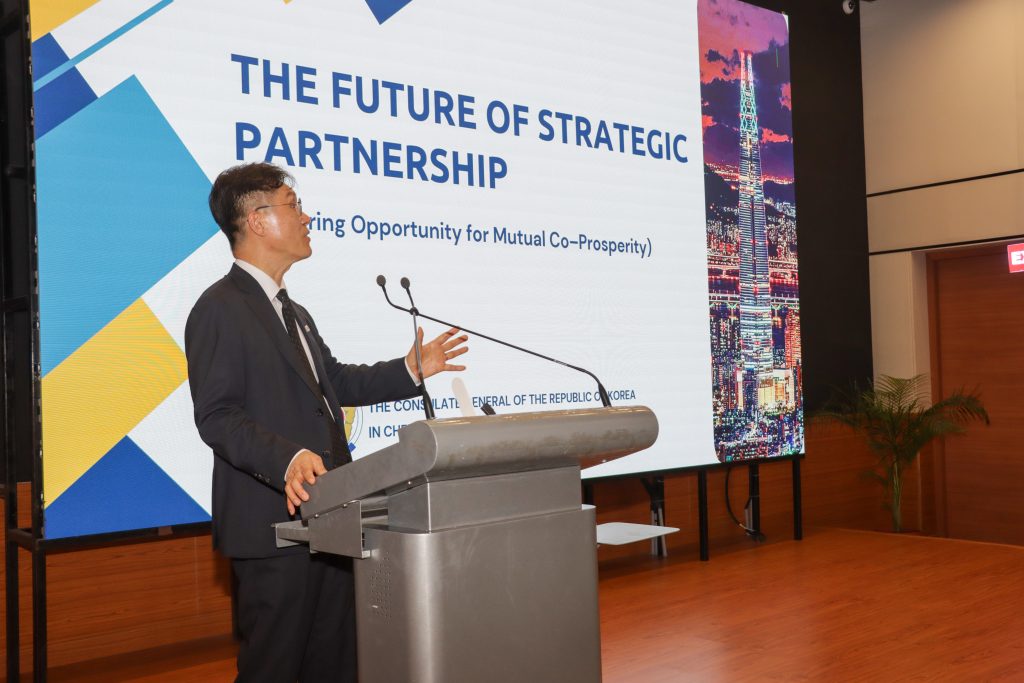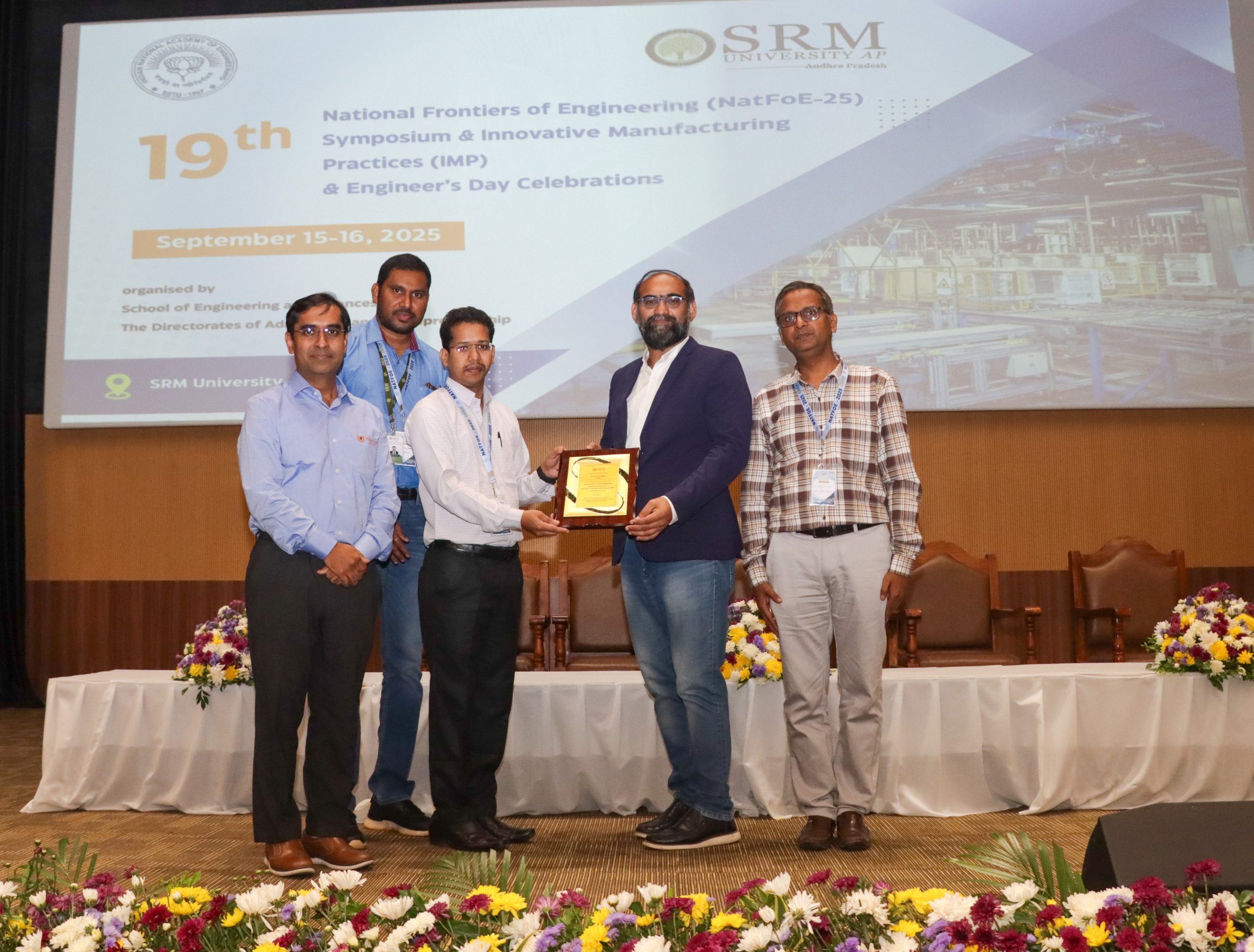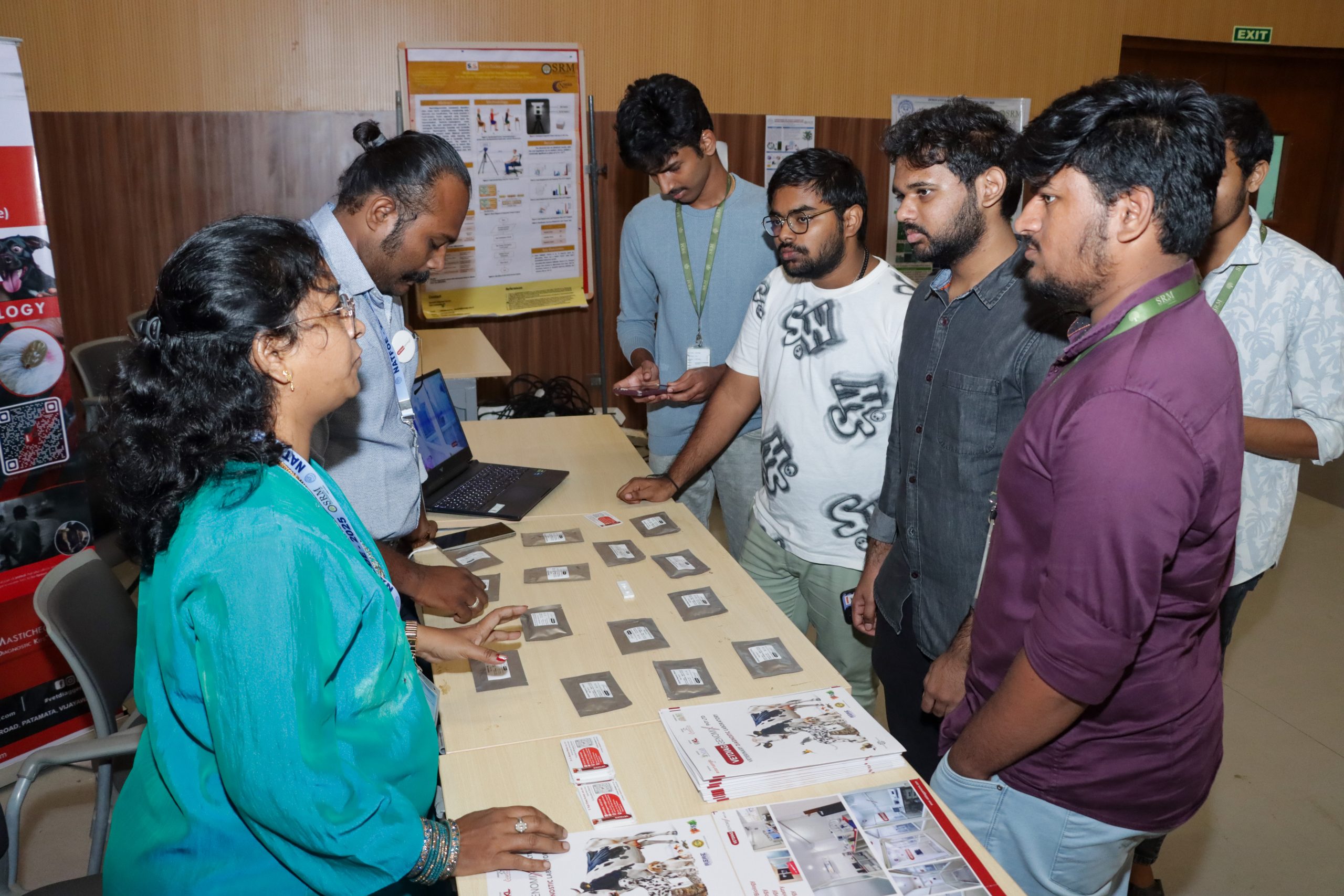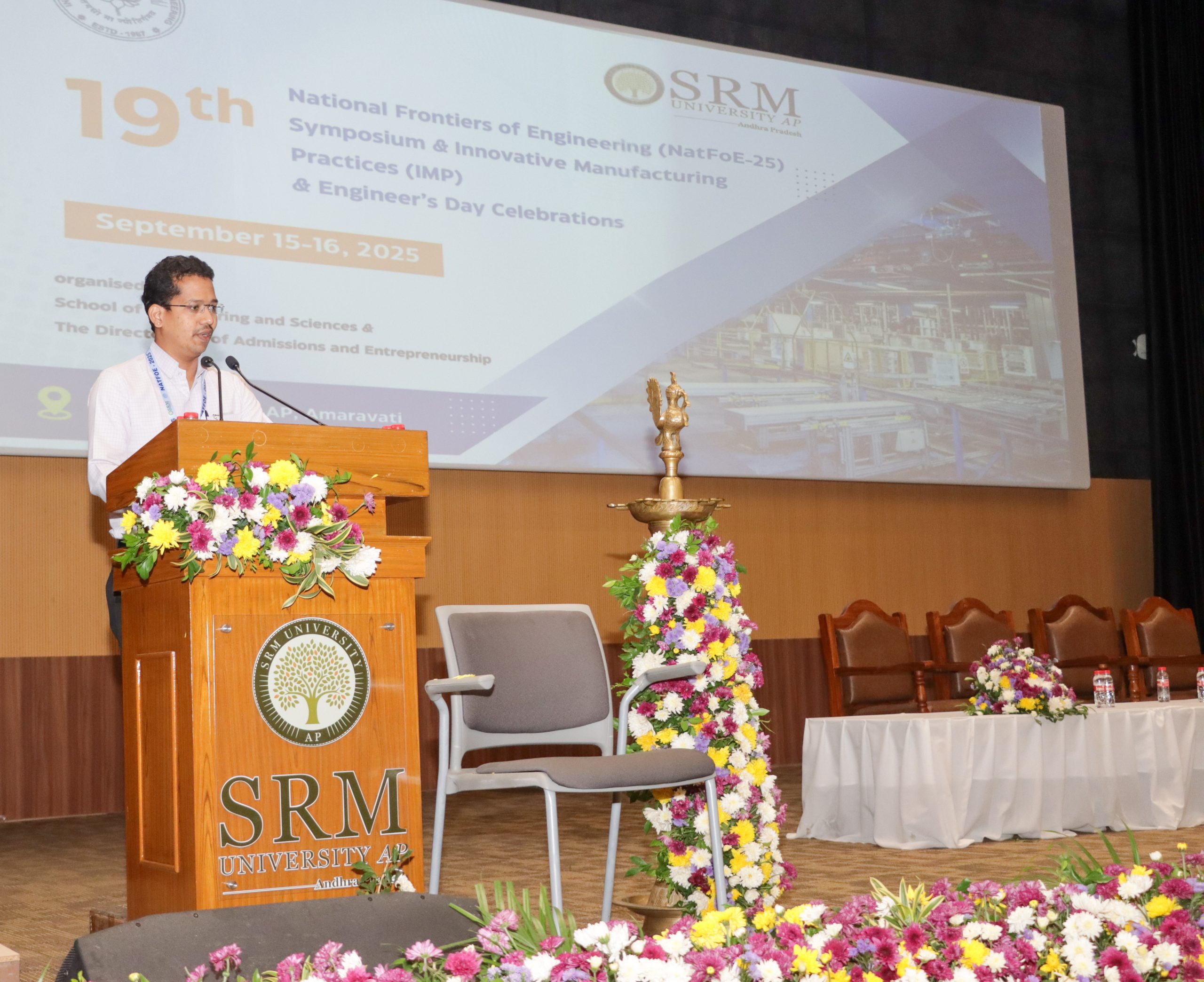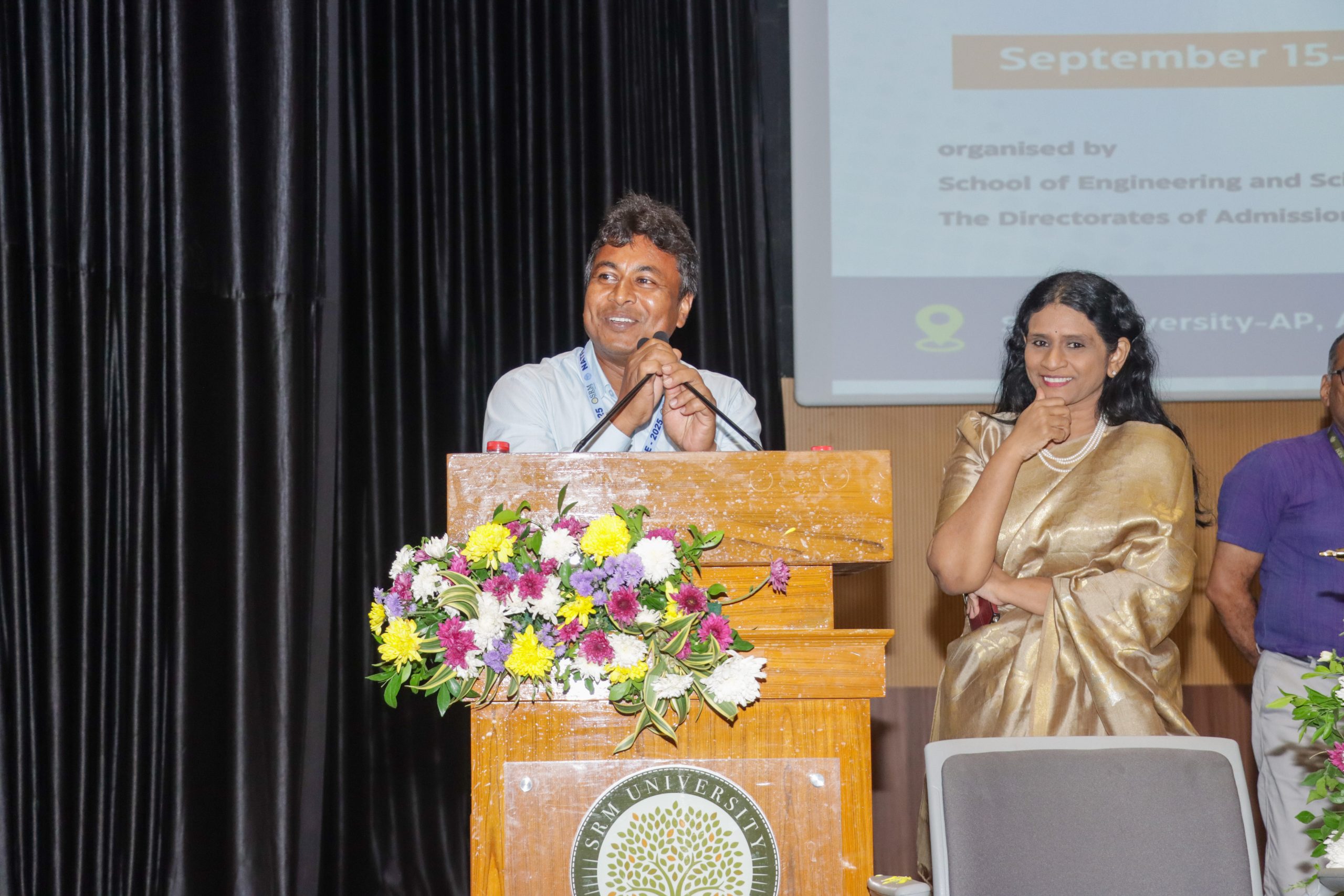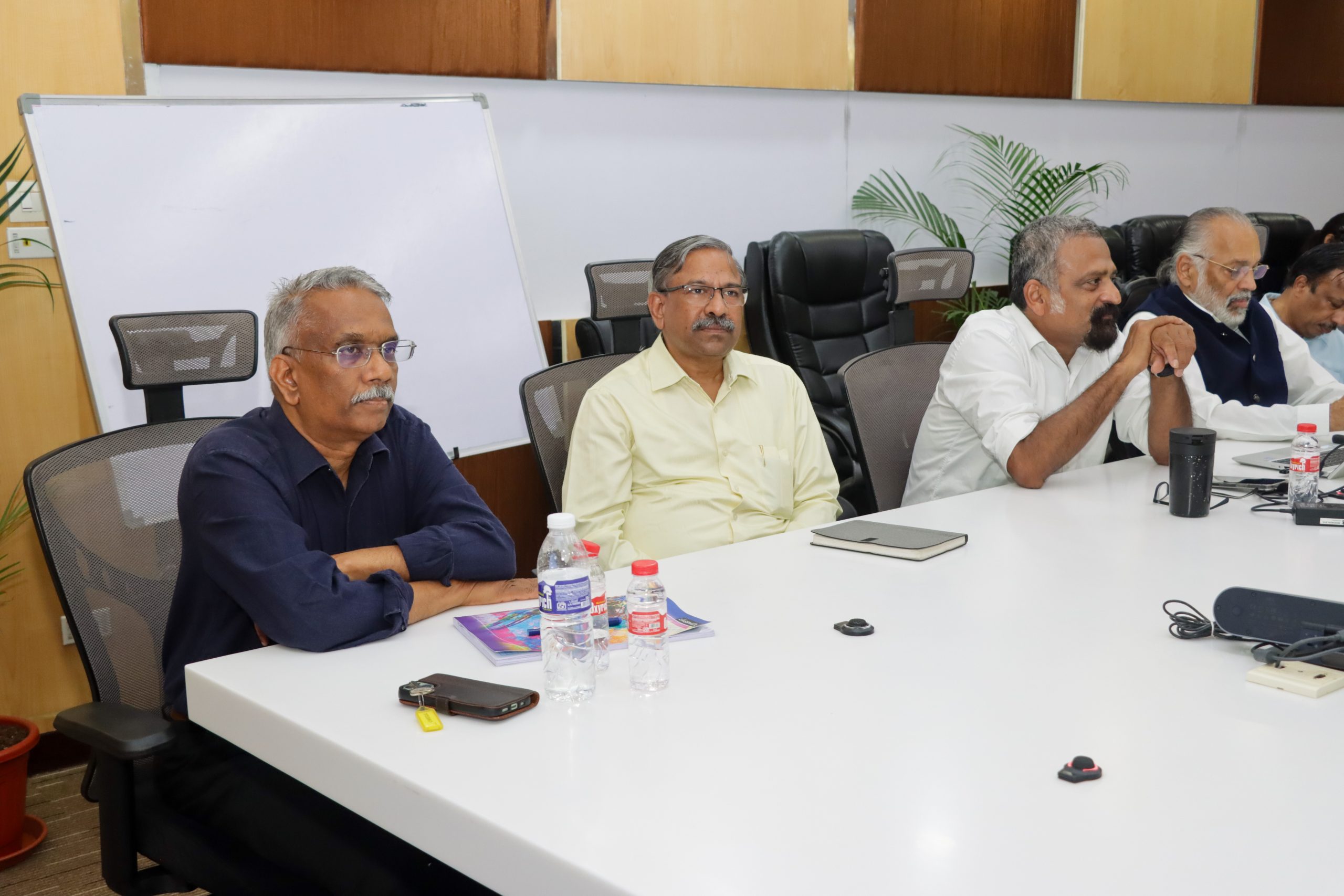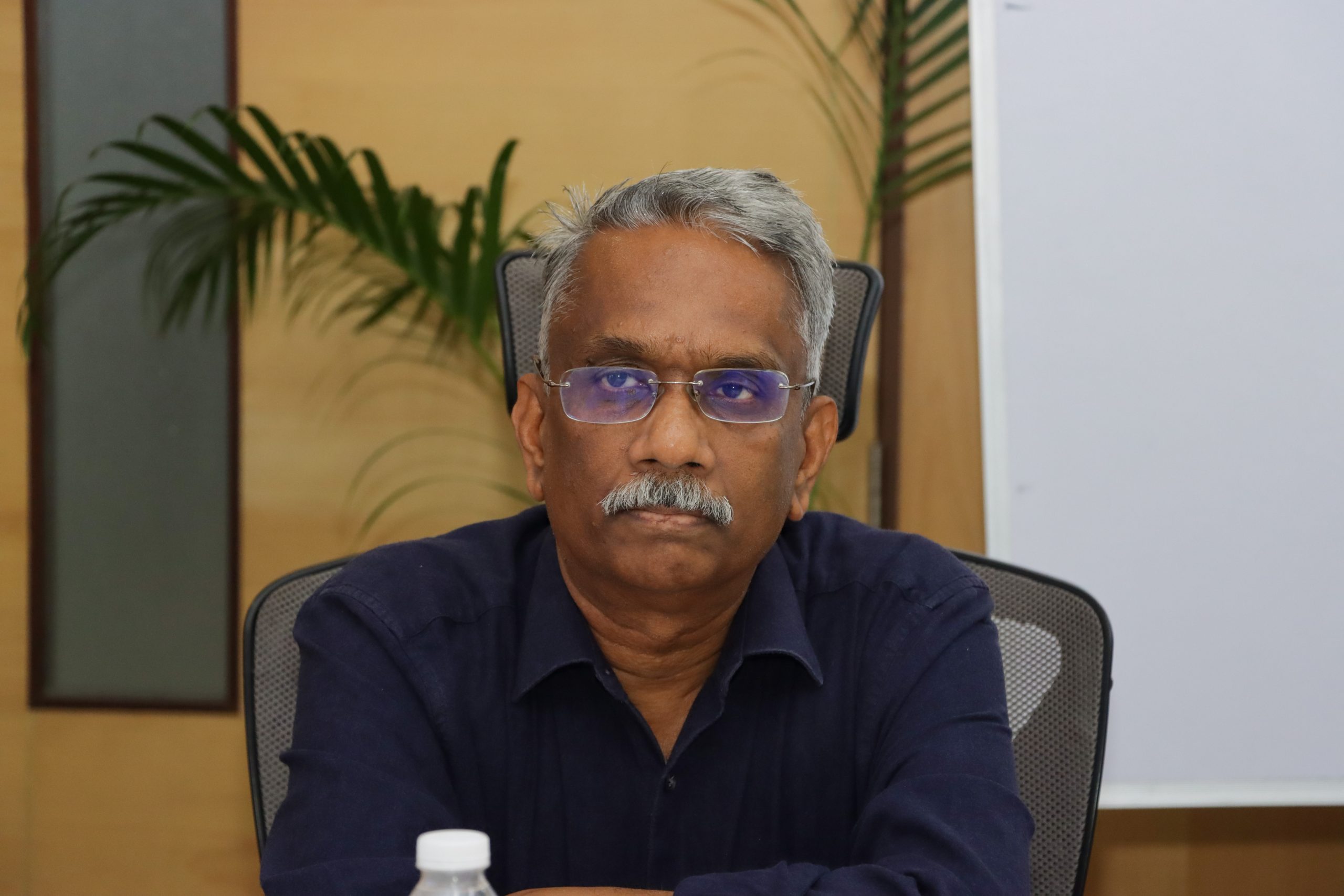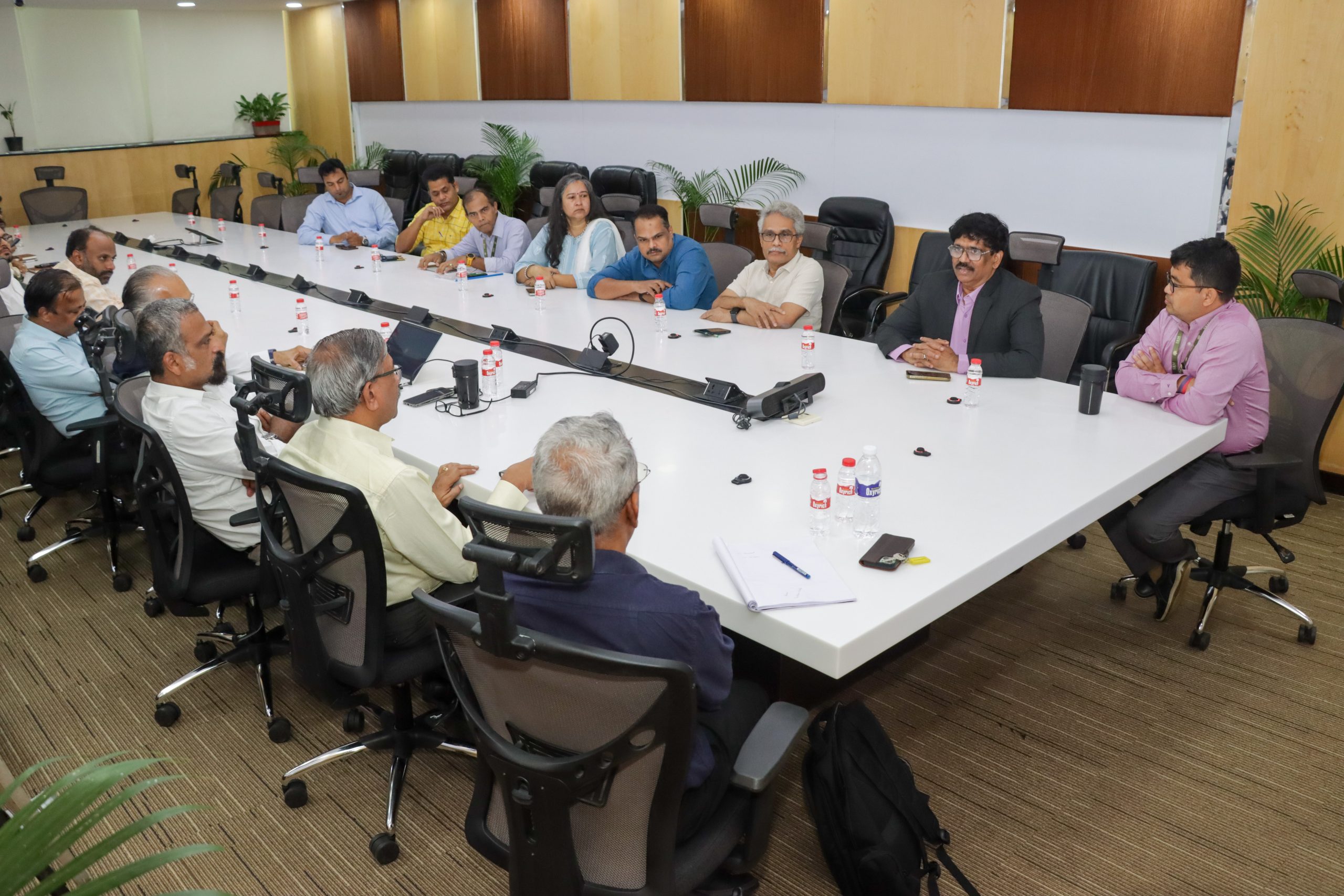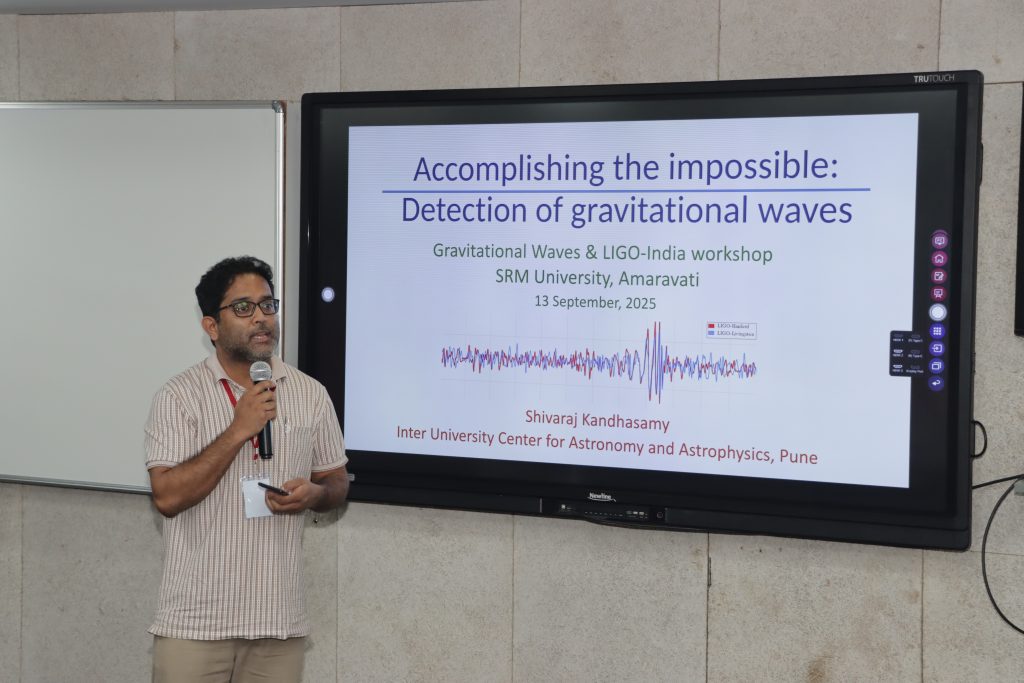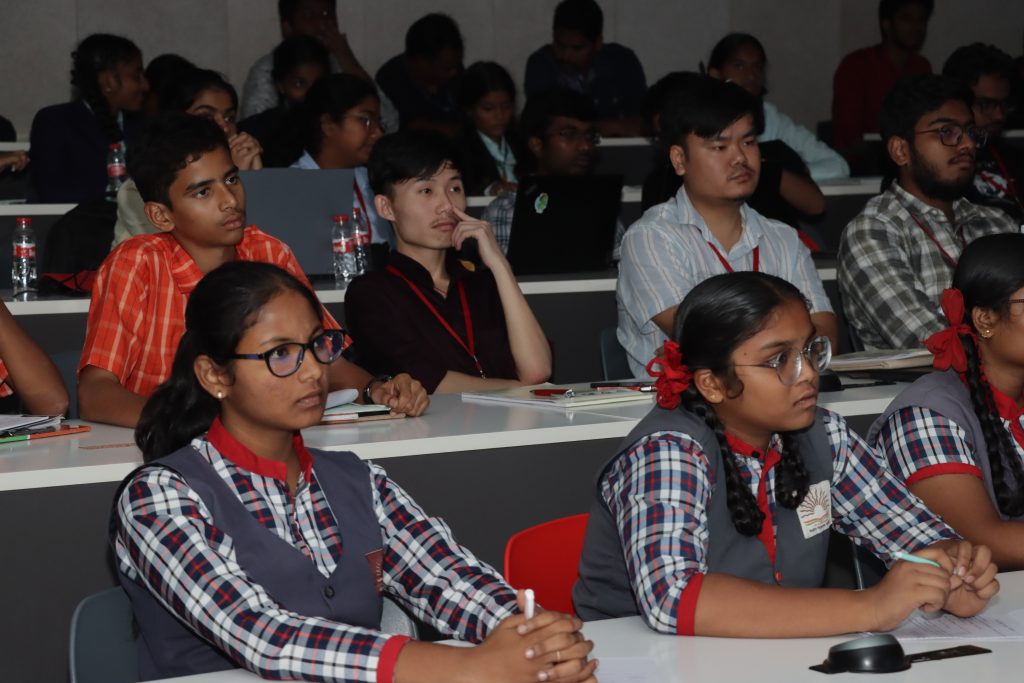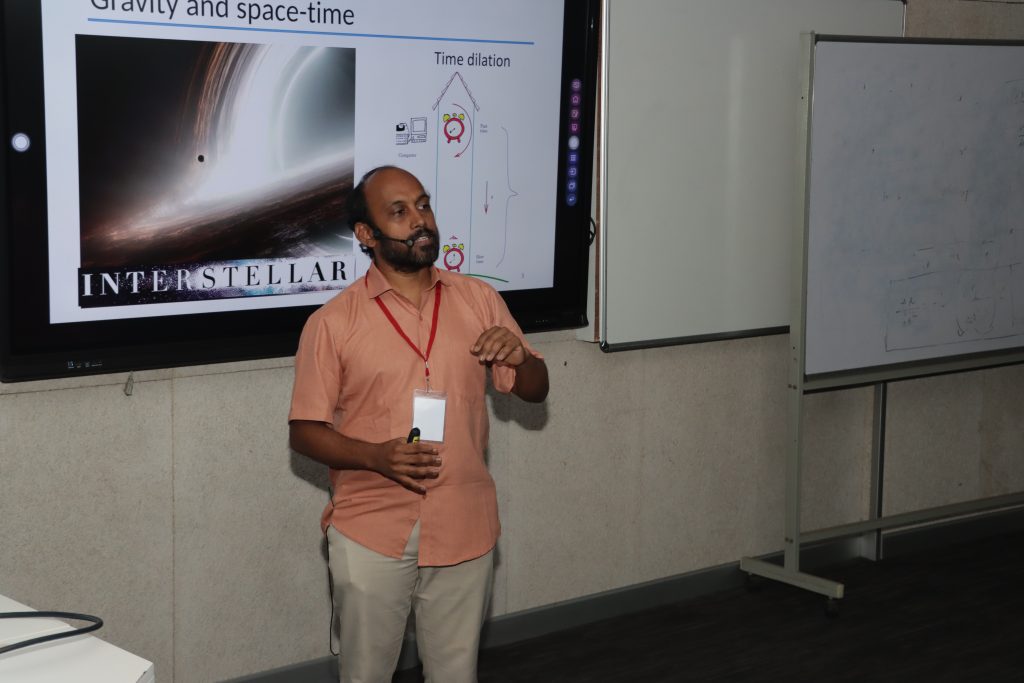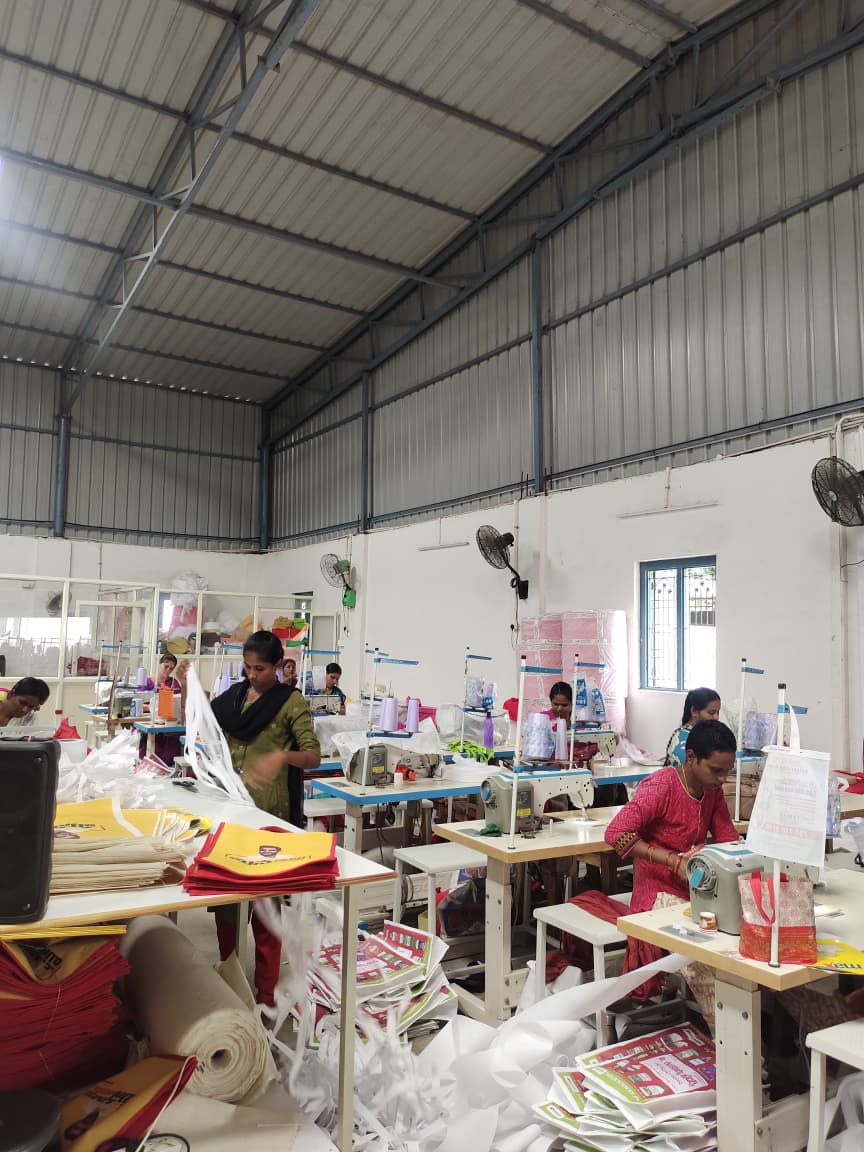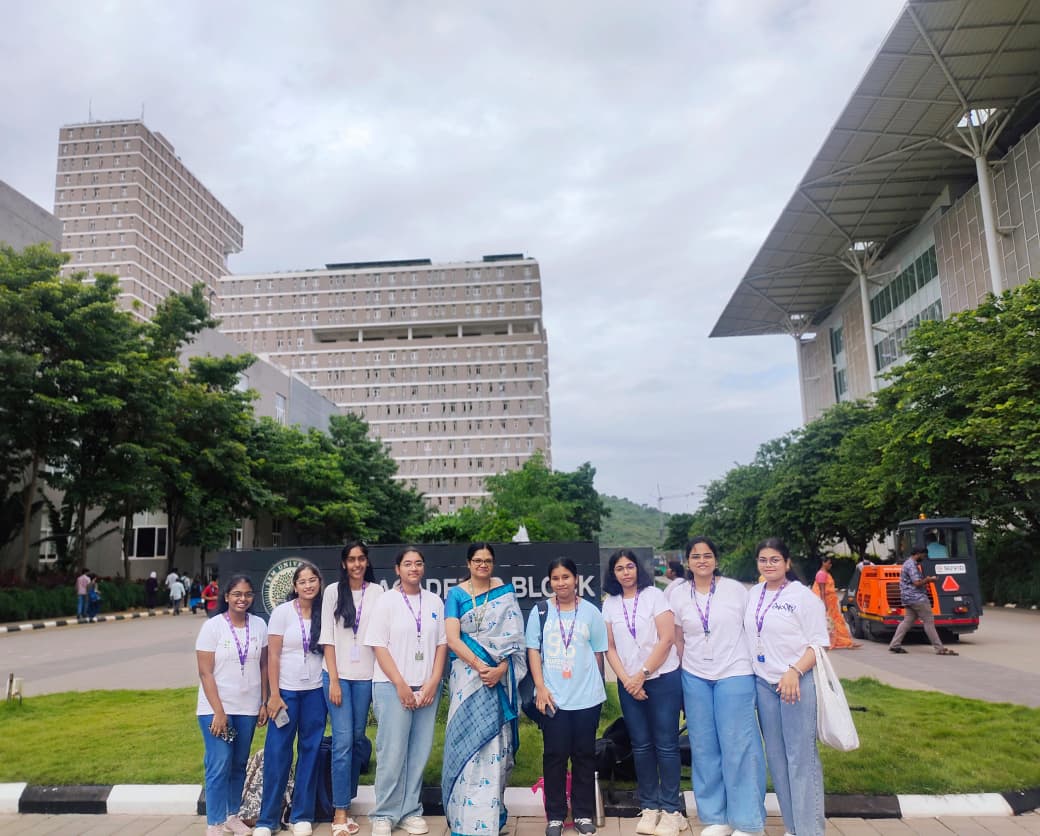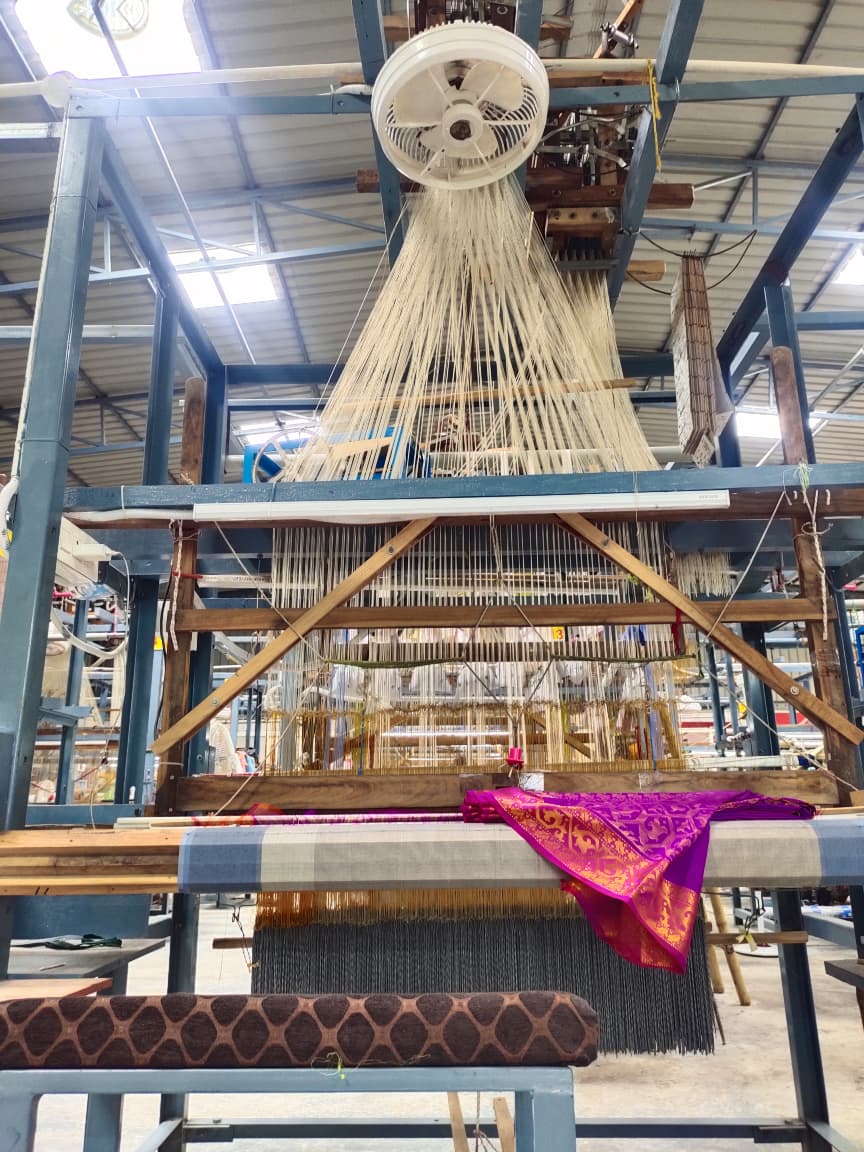Seven Professors Ranked Among World’s Top 2% Scientists by Stanford University
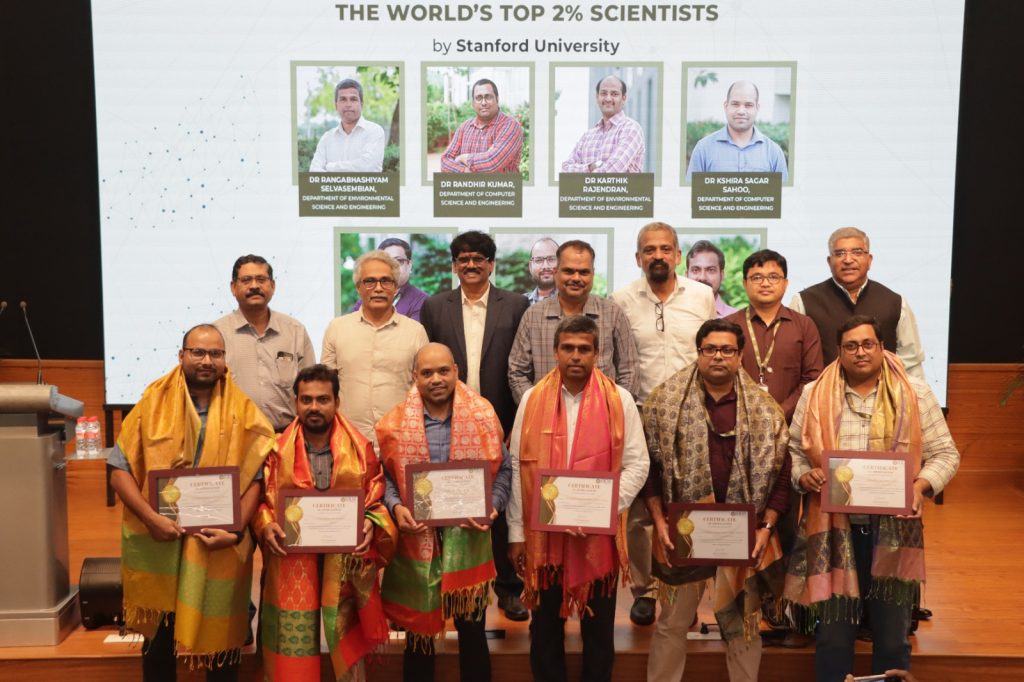
Seven of SRM AP’s distinguished faculty members have been recognised among the World’s Top 2% Scientists for the year 2025, a list published by Elsevier and compiled by Stanford University. This global recognition stands as a testament to the university’s expanding research footprint and the academic excellence of its scholars.
The honourees include Dr Rangabhashiyam Selvasembian, Associate Professor and Head, Department of Environmental Science and Engineering, in the domain of Earth and Environmental Sciences; Dr Karthik Rajendran, Associate Professor, Department of Environmental Science and Engineering, in the domain of Enabling and Strategic Technologies; Dr Randhir Kumar, Assistant Professor, Department of Computer Science and Engineering, in the domain of Information and Communication Technologies; and Dr Kshira Sagar Sahoo, Assistant Professor, Department of Computer Science and Engineering, in the domain of Information and Communication Technologies. In recognition of their achievement, these four scientists will also receive a cash award of ₹50,000/- each.
The other honourees are Dr Vinodkumar Etacheri, Associate Professor of Practice, Center for Interdisciplinary Research, in the domain of Enabling and Strategic Technologies; Dr Prabhujit Mohapatra, Assistant Professor, Department of Computer Science and Engineering, in the domain of Information and Communication Technologies; and Dr Pintu Bhunia, Assistant Professor, Department of Mathematics, in the domain of Functional Analysis and Operator Theory, making a total of seven SRM AP faculty members in the global list. This recognition underscores the university’s multidisciplinary research excellence and its commitment to advancing science, technology, and innovation to address global challenges.
Congratulating the scientists during the felicitation ceremony, Prof. Ch Satish Kumar, Vice Chancellor(I/C), said, “I am honoured to felicitate our faculty ranked among the world’s top 2% scientists by Stanford University. They are role models for colleagues and society alike. This recognition is a proud moment for SRM University-AP and a validation of the world-class research culture we nurture. The global impact of our faculty not only advances scientific knowledge but also inspires our students to innovate fearlessly and contribute meaningfully to society.”
The event concluded with a vote of thanks delivered by Mr Issac Samala Gerard, Director-HR, who lauded the faculty for their achievements and encouraged them to continue raising the bar, thereby strengthening SRM University-AP’s presence on the global research map.
- Published in News, Research News
Ms M Krishna Kumari’s Innovative Approach to Adaptive NDN Caching
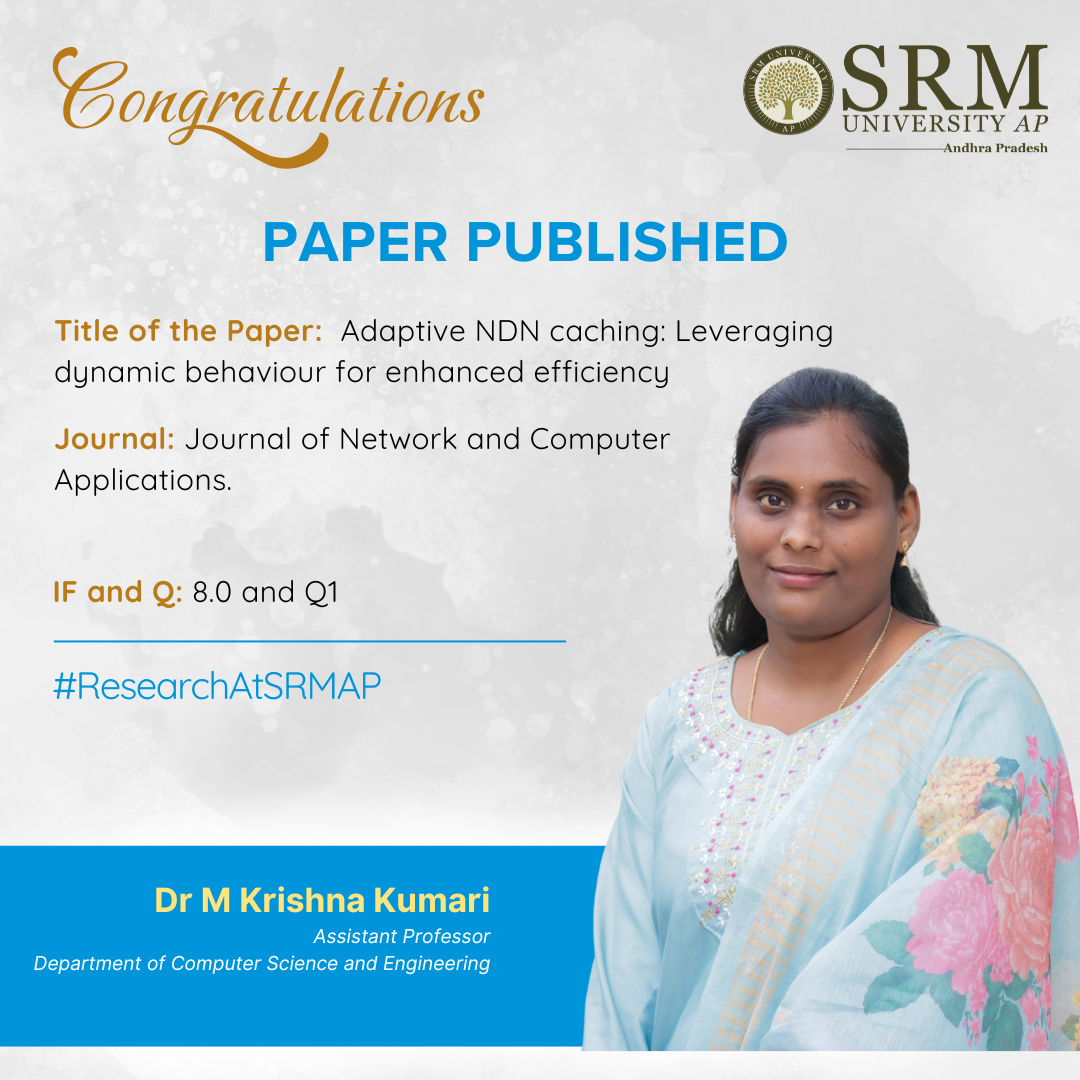 Assistant Professor, Dr M Krishna Kumari, Assistant Professor, Department of Computer Science and Engineering, SRM University AP, has published her paper “Adaptive NDN Caching: Leveraging Dynamic Behaviour for Enhanced Efficiency” in the Q1 Journal of Network and Computer Applications with an impact factor of 8.0. The paper reimagines the internet using Named Data Networking
Assistant Professor, Dr M Krishna Kumari, Assistant Professor, Department of Computer Science and Engineering, SRM University AP, has published her paper “Adaptive NDN Caching: Leveraging Dynamic Behaviour for Enhanced Efficiency” in the Q1 Journal of Network and Computer Applications with an impact factor of 8.0. The paper reimagines the internet using Named Data Networking
(NDN), which shifts the focus from location to data-centric communication. The study introduces an adaptive caching strategy that will lead to faster responses, smoother access, and fewer delays, even when tested on real-world topologies.
Abstract of the Research:
The publication “Adaptive NDN Caching: Leveraging Dynamic Behaviour for Enhanced Efficiency” proposes a dynamic caching strategy for Named Data Networking (NDN), a next- generation Internet architecture that shifts from host-based to data-centric communication. The approach continuously adapts to real-time content demand by monitoring request patterns and intelligently placing frequently accessed data closer to end users. This adaptive mechanism enhances efficiency, reduces delays, and improves overall network performance when tested on real-world topologies.
Layperson’s Explanation:
The Internet today focuses on where data comes from (IP addresses), but modern users care about what the data is. Applications such as video streaming, online education, AI, and IoT require data instantly, regardless of its source. NDN reimagines the Internet by focusing on data itself. The caching strategy ensures that routers learn which content is most frequently requested and bring it closer to the users. This means faster responses, smoother access, and less congestion, even during heavy network load.
Practical Implementation and Social Implications:Traditional TCP/IP struggles with scalability, congestion, and security. In contrast, NDN is a
future Internet architecture designed for delay-sensitive and data-driven environments. This is
vital because:
- In AI and IoT, even a fraction of delay can disrupt real-time processing.
- In VANETs (Connected Vehicular Networks), delays of milliseconds can mean serious
danger for safety-critical applications. - In tactical and mission-critical communications, reliability and speed can determine
mission success.
The caching innovation strengthens NDN’s role in delivering secure, delay-sensitive, and efficient communication for these emerging domains, while also reducing congestion and making networks more sustainable.
Collaborations:
This research is a collaboration between the Department of Computer Science and Engineering, SRM University-AP, Amaravati, and the Department of Computer Science and Engineering, Indian Institute of Technology (ISM, Dhanbad), in collaboration with Dr. Nikhil Tripathi (IIT Dhanbad).
Future Research Plans:
Future directions include extending adaptive caching to vehicular networks (VANETs), tactical communications, and other mission-critical systems, with a focus on AI-driven predictive caching for real-time applications. The goal is to enable networks to anticipate demand, ensure secure data delivery, and minimize delays, which
Photographs related to the research:
Sustainable Development in the BRICS Economies
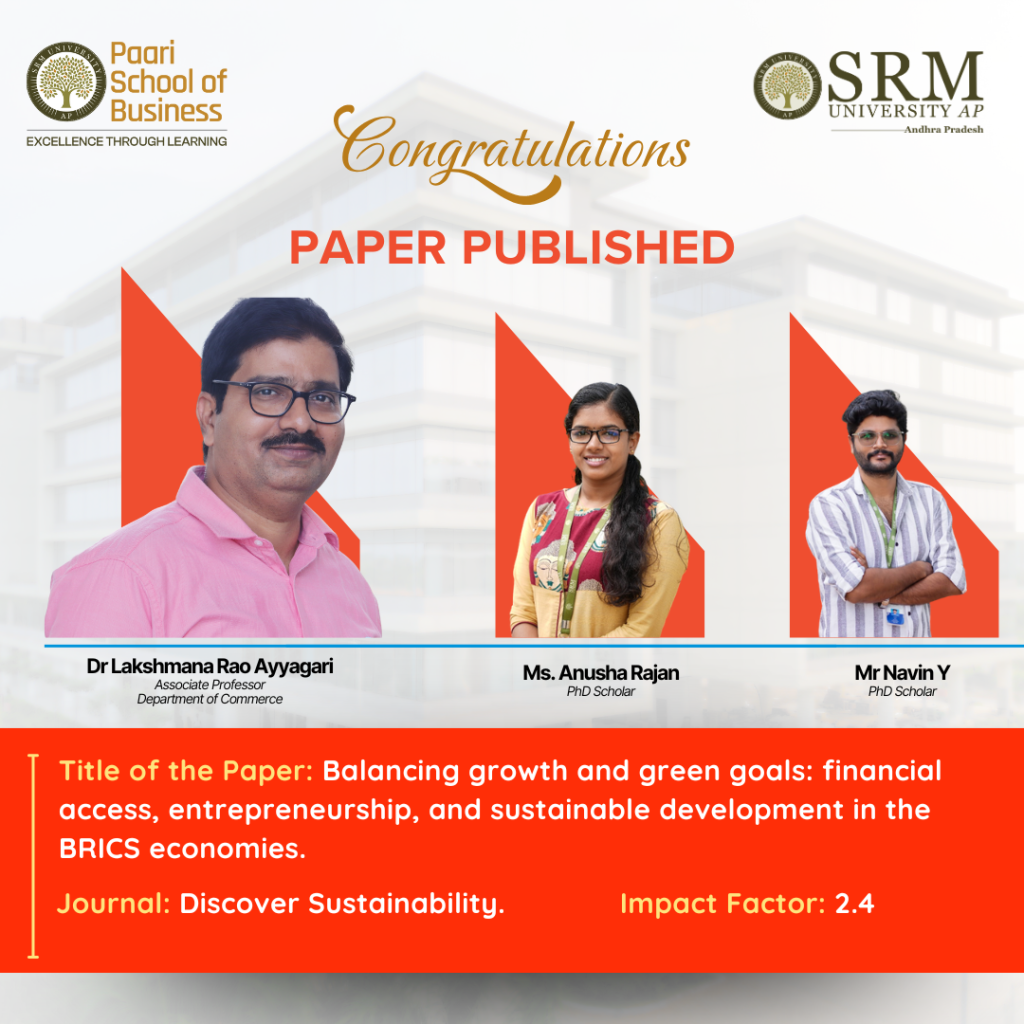 Imagine a world where economic growth of a society is done sustainably and with environmental care. Dr Lakshmana Rao Ayyagari, Assistant Professor, Department of Commerce, along with his scholars Mr Navin Y and Ms Anusha Rajan, has published an article “Balancing Growth and Green Goals: Financial Access, Entrepreneurship, and Sustainable Development in the BRICS Economies” in the Q1 journal Discover Sustainability, that looks at how countries like Brazil, Russia, India, China, and South Africa (BRICS) can support entrepreneurs without hurting the planet. The goal is to help governments, banks, and businesses grow responsibly by making sure financial tools support both money-making and environmental care.
Imagine a world where economic growth of a society is done sustainably and with environmental care. Dr Lakshmana Rao Ayyagari, Assistant Professor, Department of Commerce, along with his scholars Mr Navin Y and Ms Anusha Rajan, has published an article “Balancing Growth and Green Goals: Financial Access, Entrepreneurship, and Sustainable Development in the BRICS Economies” in the Q1 journal Discover Sustainability, that looks at how countries like Brazil, Russia, India, China, and South Africa (BRICS) can support entrepreneurs without hurting the planet. The goal is to help governments, banks, and businesses grow responsibly by making sure financial tools support both money-making and environmental care.
Abstract
Financial access is a cornerstone of entrepreneurship and a key enabler of economic development. This study examines the dual role of financial systems in promoting entrepreneurial growth and sustainable development across BRICS nations (2000–2023). Using robust PLS-SEM analysis, the research reveals that while financial access drives business formation and economic resilience, it also poses ecological challenges through resource overuse and pollution. The findings highlight a paradox: the same financial mechanisms that foster progress can strain environmental sustainability. The study proposes actionable strategies to align finance with green development goals.
Practical Implementation / Social Implications of the Research
- Policy Impact: Informs BRICS governments to introduce green credit quotas, eco-tax incentives, and sustainability assessments in funding policies.
- Financial Sector Reform: Encourages banks to incorporate environmental risks into lending practices.
- Community Empowerment: Highlights the importance of inclusive entrepreneurship programs, especially for rural and marginalized communities.
- Sustainability Education: Provides a foundation for integrating sustainability into entrepreneurship curricula and public discourse.
Future Research Plans
- Explore the role of blockchain and AI in promoting transparent, sustainable financial systems.
- Investigate gender and social equity in sustainable entrepreneurship ecosystems.
- Conduct comparative studies on green finance policy innovations beyond BRICS (e.g., ASEAN or African Union).
- Develop longitudinal, mixed-methods frameworks to assess cultural, institutional, and digital factors in sustainability transitions.
Link to the Article
- Published in Commerce Current Happenings, Departmental News, News, Research News
Transforming IoT Performance: Deep Learning in the Fog–Cloud Continuum
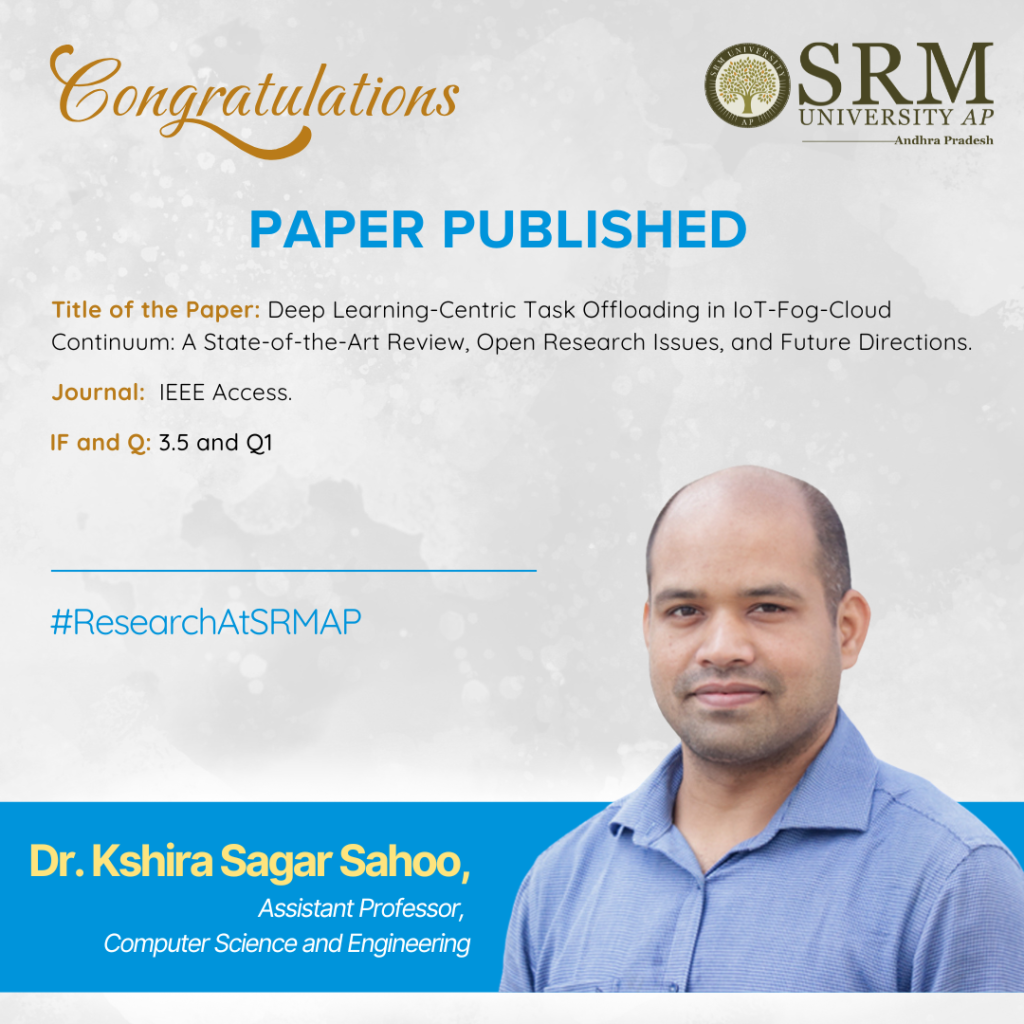
In the paper titled “Deep Learning-centric Task Offloading in IoT-Fog-Cloud Continuum: A State-of-the-Art Review, Open Research Issues and Future Directions,” by Dr Kshira Sagar Sahoo, Assistant Professor, Department of Computer Science and Engineering, and collaborators, the role of machine learning and deep learning in optimising IoT systems is comprehensively reviewed. Published in IEEE Access (2025), the study examines how intelligent task offloading and resource allocation across the fog–cloud continuum can address challenges of latency, bandwidth, and privacy. The article highlights key open issues and future directions, offering insights for developing faster, more reliable, and secure IoT applications in domains such as healthcare, smart cities, autonomous vehicles, and industrial IoT.
Abstract
The rapid growth of IoT and real-time applications has created massive volumes of data, which are traditionally processed in cloud-centric systems. This approach often suffers from high latency, bandwidth limitations, and privacy risks. Fog computing, by bringing computation closer to IoT devices, offers a promising solution. Our study provides a comprehensive review of task offloading and resource allocation in fog–cloud continuum, with a focus on machine learning and deep learning–based approaches.
Explanation in Layperson’s Terms
With billions of smart devices (like wearables, sensors, and cameras) generating data every second, sending everything to the cloud for processing can cause delays and strain the internet. Imagine if your smartwatch had to send your heartbeat data across the globe before alerting you of a health issue—that delay could be dangerous. Our research looks at how to use fog–cloud continuum, where nearby devices like routers or gateways help with computation instead of sending everything to the cloud.
Practical Implementation
Findings from this survey can help design smarter IoT systems where tasks are offloaded efficiently to nearby fog or edge devices, reducing latency and improving reliability. Key applications include:
- Healthcare monitoring (real-time alerts)
- Smart cities (traffic management, surveillance)
- Autonomous vehicles (low-latency decision-making)
- Industrial IoT (automation, predictive maintenance)
Social Impact
- Faster decision-making: Improves user safety and experience by cutting delays.
- Cost efficiency: Reduces operational costs by lowering dependence on cloud-only processing.
- Data privacy: Sensitive data can be processed closer to the source, enhancing security.
Collaborations
This research is a joint collaboration between:
- University of Saskatchewan, Saskatoon, SK, Canada
- GITAM Deemed to be University, Visakhapatnam, India
- SRM University-AP
Future Research Plans
- Developing lightweight, explainable AI models for task offloading on constrained IoT devices.
- Extending research into cybersecurity in IoT–Fog–Cloud systems, particularly DDoS detection and mitigation.
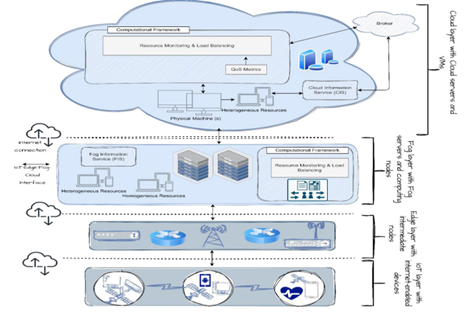
- Published in CSE NEWS, Departmental News, News, Research News
Innovating for a Greener Future: Environmental Sustainability Exhibition 3.0 at SRM AP
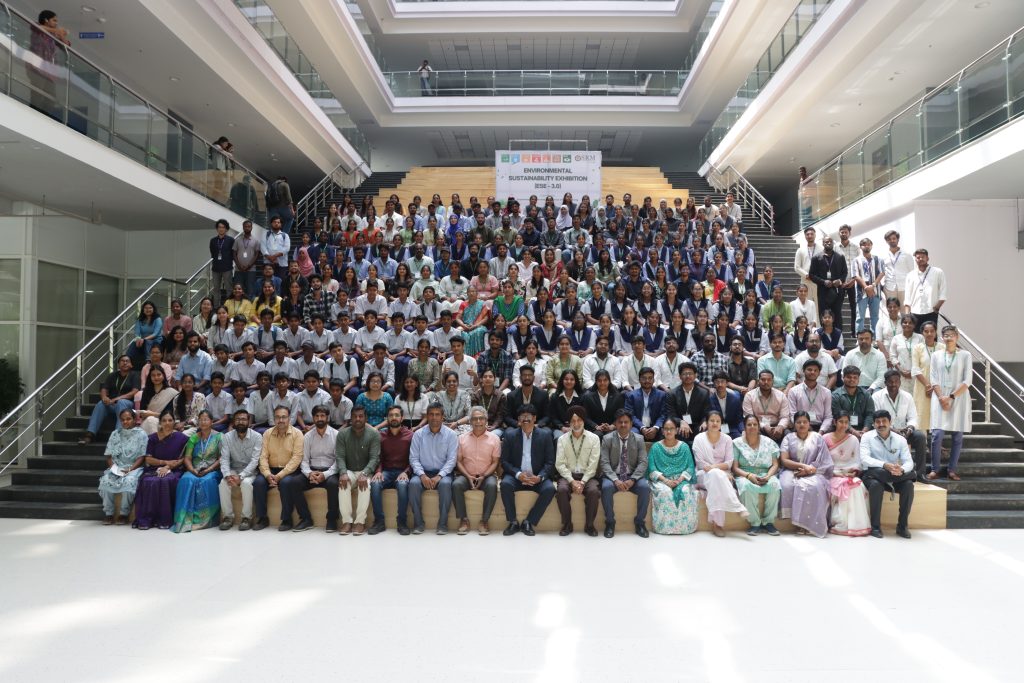
The Department of Environmental Science and Engineering, successfully hosted the third edition of the Environmental Sustainability Exhibition (ESE 3.0), a national-level platform dedicated to advancing knowledge, innovation, and collaboration in environmental protection and sustainable technologies, on September 19, 2025.
The event was inaugurated by Prof. Ch Satish Kumar, Vice Chancellor (I/C), who declared the exhibition open in the esteemed presence of Prof. C V Tomy, Dean of the School of Engineering and Sciences, Dr Rangabhashiyam Selvasembian, Associate Professor and Head of the Department of Environmental Science and Engineering, along with the, Heads of Departments, faculty members, staff, and students from various Universities and schools around the region.
In his inaugural address, Prof. Satish Kumar, Vice-Chancellor (I/C) , connected the exhibition’s vision to global efforts, stressing, “Sustainability is not an abstract idea but a responsibility towards future generations. Platforms like ESE 3.0 enable students to dream, innovate, and contribute to India’s commitment towards the United Nations’ Sustainable Development Goals and the Paris Climate Agreement.” He also emphasised the importance of achieving net zero emissions, drawing examples from states like Sikkim and nations like Bhutan.
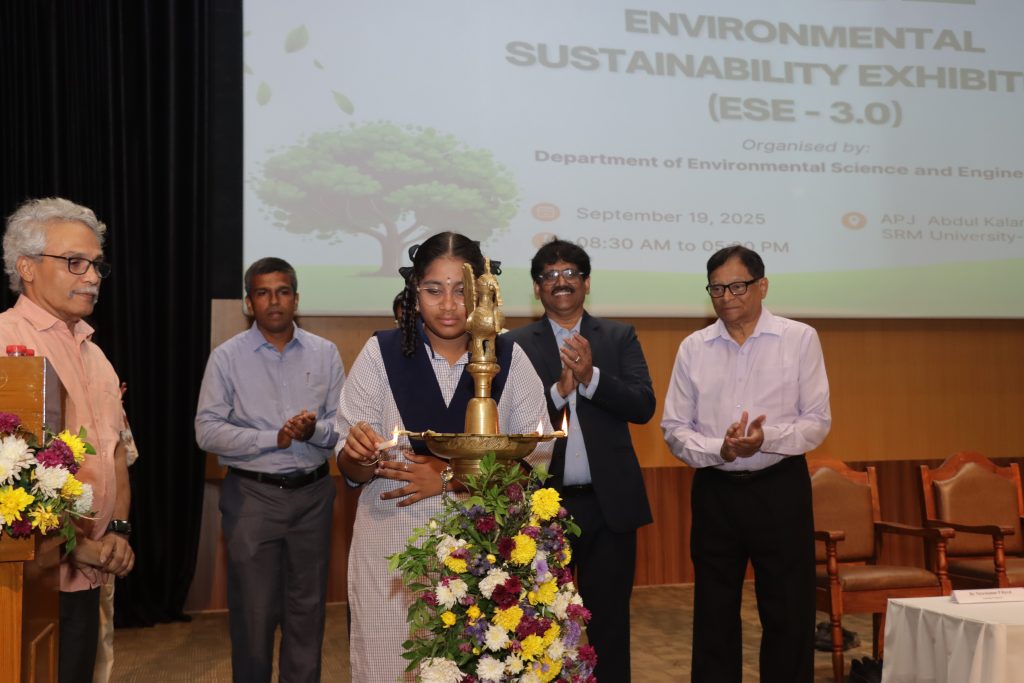
Carrying forward the legacy of the successful ESE 1.0 (2024) and ESE 2.0 (March 2025), this edition brought together 155 participants, hailing from states such as Punjab, Bihar, Telangana, and Andhra Pradesh. Around 60 exhibits, including 23 posters, 10 demos, and 25 oral presentations, represented prestigious colleges and universities nationwide. Each showcased innovative ideas rooted in their local contexts and challenges.
The top three winners were awarded a prize pool of ₹20,000, ₹15,000, and ₹10,000. Team P Akhila & V Yagneswari (Aditya University) secured the first prize, followed by Swarna Baisa & Bhanu Naik Jaloth (SR University, Warangal) and J Meghanasiri & P Sharon (SRR & CVR Govt. Degree College), who were awarded the second and third prizes, respectively.
Addressing the gathering, Dr Rangabhashiyam Selvasembian noted: “ESE 3.0 serves as an exceptional platform for students across India to present innovative ideas and initiatives for building a sustainable future. It motivates them to showcase their projects, interact with experts, and contribute meaningfully to the ongoing discourse on sustainability.”
Prof. C V Tomy further emphasised the importance of personal responsibility in everyday choices: “Every technological advancement, while beneficial, has an environmental cost. Even small, mindful actions such as conserving water and electricity make a significant difference when adopted collectively. Cultivating these habits early is the foundation of sustainability.”
The exhibition highlighted themes of air and water pollution mitigation, resource optimisation, sustainable development practices, waste management, renewable energy, and circular economy models. Participants presented working models, prototypes, posters, and research-based solutions, fostering rich academic exchange and dialogue.
Beyond the exhibition stalls, the event also included Poster presentations on climate change, environmental health, and resource equity, Hands-on training sessions introducing sustainability-driven advancements, Laboratory and campus visits offering exposure to SRM-AP’s state-of-the-art facilities and cutting-edge environmental research infrastructure.
With enthusiastic participation, thought-provoking exhibits, and meaningful interactions, ESE 3.0 reaffirmed SRM University-AP’s role as a hub for environmental innovation and sustainability research, dedicated to shaping solutions for the most pressing global challenges.
- Published in Departmental News, ENVS News, News, Research News
SRM University-AP Hosts Korean Consulate Delegation to Explore Academic and Cultural Collaborations
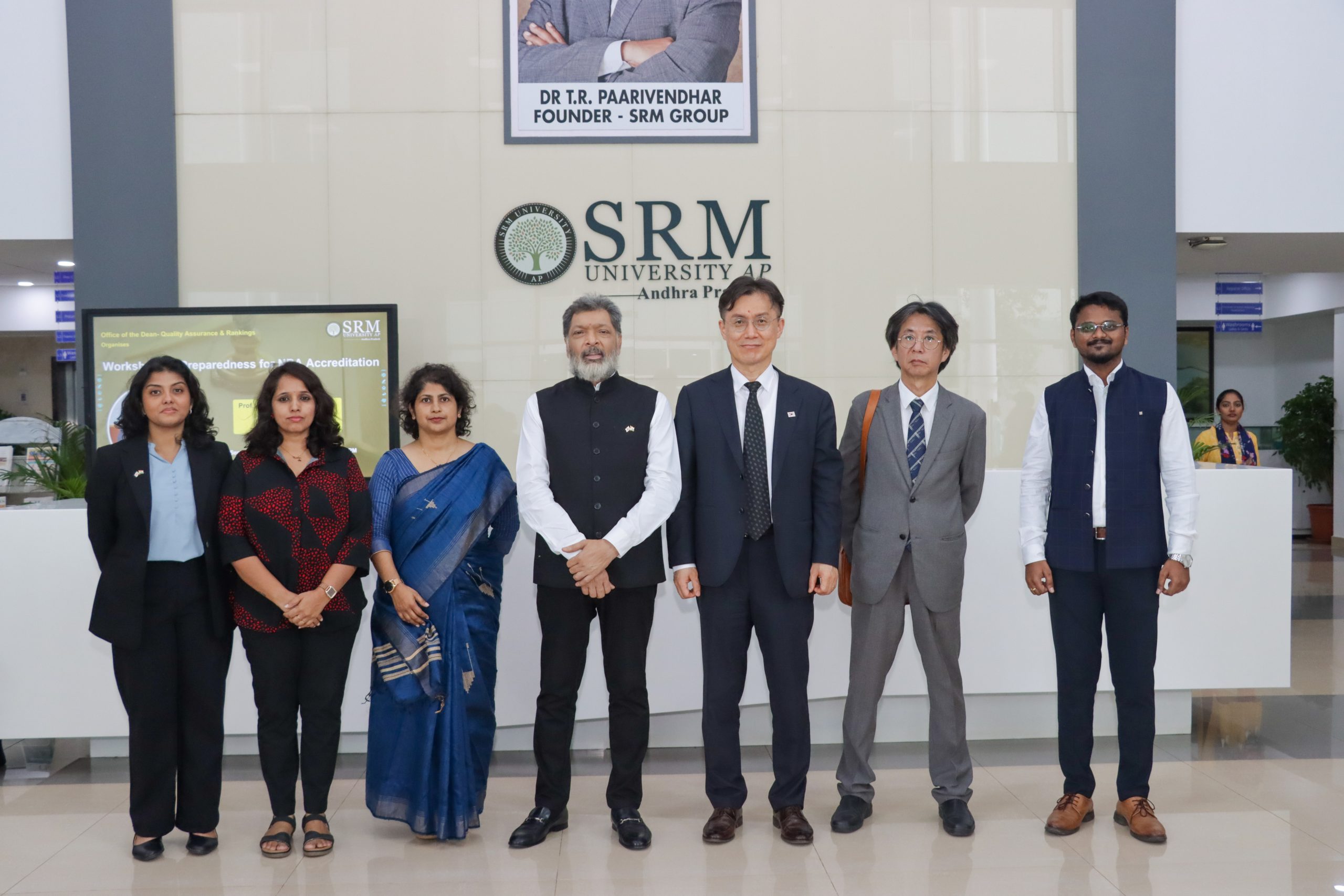 SRM University-AP had the honour of hosting a distinguished delegation from the Consulate General of the Republic of Korea on September 11th, 2025. The delegation was led by H.E. Mr Chang Nyun Kim, Consul General of the Republic of Korea in Chennai, and Mr Suresh Chukkapalli, Honorary Consul General of the Republic of Korea in Hyderabad, who interacted with university leaders, faculty, and students in a series of thought-provoking sessions. The program commenced with a boardroom meeting between the delegates and the university leadership.
SRM University-AP had the honour of hosting a distinguished delegation from the Consulate General of the Republic of Korea on September 11th, 2025. The delegation was led by H.E. Mr Chang Nyun Kim, Consul General of the Republic of Korea in Chennai, and Mr Suresh Chukkapalli, Honorary Consul General of the Republic of Korea in Hyderabad, who interacted with university leaders, faculty, and students in a series of thought-provoking sessions. The program commenced with a boardroom meeting between the delegates and the university leadership.
In his remarks, H.E. Mr Chang Nyun Kim commended SRM University-AP for its world-class infrastructure and academic excellence that could lead to potential international collaborations. A conversation on nurturing graduates who are not only technologically skilled but also guided by strong ethical principles took center stage, discussing the global concern surrounding artificial intelligence.
Mr Kim also praised SRM’s entrepreneurial focus, encouraging students to embrace innovation and leadership. “Don’t try to be a job seeker, be a job provider,” he urged, emphasising the need for future entrepreneurs. He expressed keen interest in establishing Korean studies and language training programs at SRM, while also exploring avenues for student exchange and joint research projects.
Moving forward, Mr Suresh Chukkapalli stressed the potential of India as a destination for higher education for Korean students, noting the growing demand for global partnerships. He drew attention to the possibilities of university-to-university collaborations, scholarship opportunities, and the integration of language learning with degree programs, calling it “the beginning of a good friendship.”
Following the leadership interactions, both dignitaries addressed the students of SRM University-AP, delivering inspiring messages about future opportunities for collaboration. Mr Kim shared Korea’s remarkable transformation from one of the poorest countries in the 1960s to a global leader in technology and innovation, pointing out that “Korea invests 5.21% of its GDP in research and development to maintain technological competitiveness.” He further spoke on Korea’s alignment with India’s “Make in India” vision, describing Korea as “one of the ideal partners for India’s economic vision.”
In his address, Mr Chukkapalli encouraged students to consider Korea as a serious destination for higher education and research. He also spoke passionately about the need for innovation and self-reliance, saying, “The entrepreneurship cell here and government subsidies can support you to stand tall with your own business enterprise.” Drawing parallels between India and Korea, he shared cultural values that make Korea a natural partner for Indian students seeking global exposure.
The event concluded with a Korean movie screening, which offered students a glimpse into Korean culture and entertainment. Beyond being a cultural exchange, the visit created fresh enthusiasm among students to explore academic, cultural, and research opportunities in Korea.
- Published in Departmental News, IR-Events, News
SRM University-AP Hosts 19th National Frontiers of Engineering Symposium and Innovation in Manufacturing Practices on Engineers’ Day
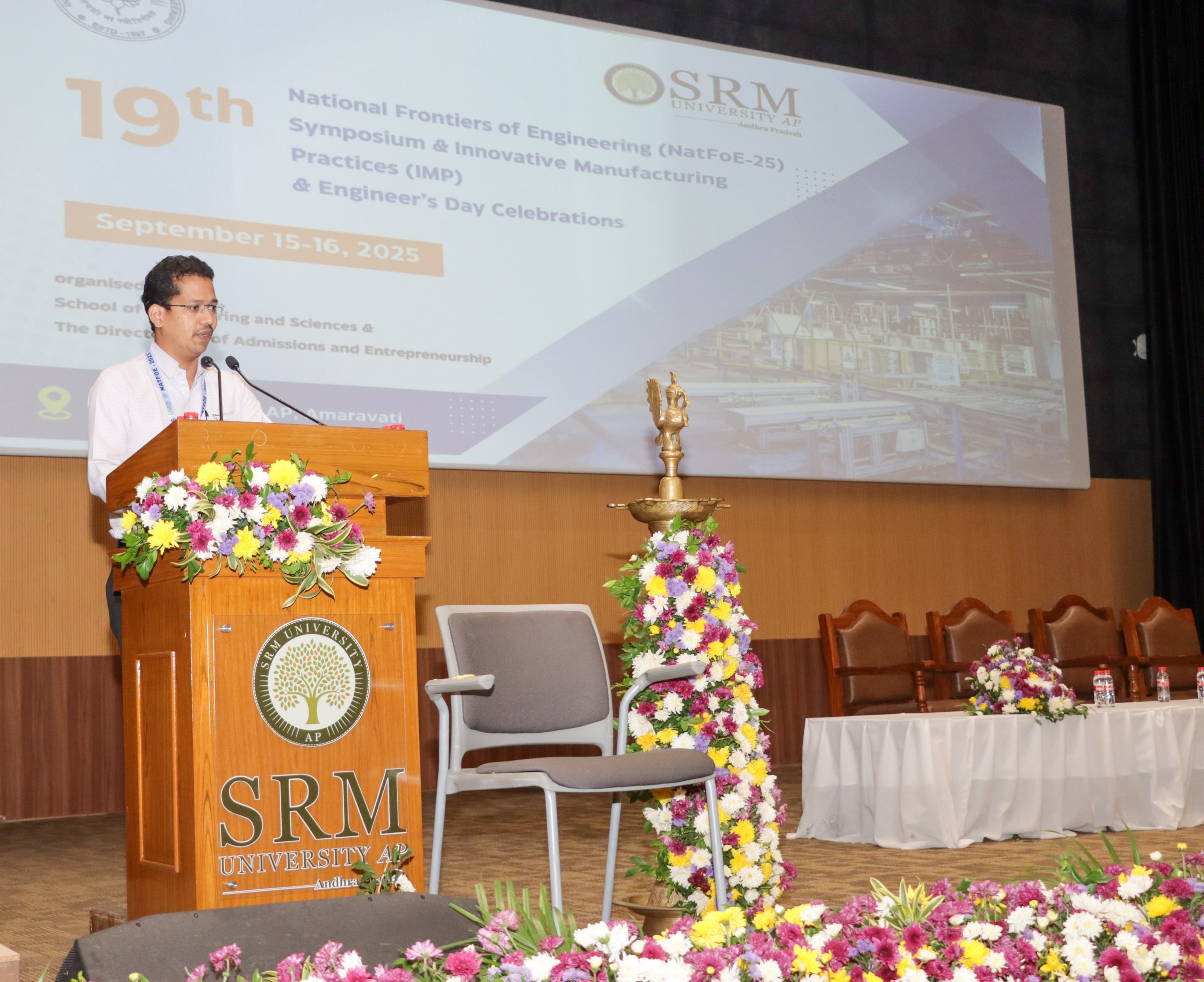 Marking Engineers’ Day 2025, SRM University-AP, in association with the Indian National Academy of Engineering (INAE), inaugurated the 19th National Frontiers of Engineering (NatFoE) Symposium and the Innovation in Manufacturing Practices (IMP) competition on September 15th and 16th. The prestigious event serves as a platform for academia, industry leaders, innovators, and young researchers to deliberate on India’s technological roadmap and to showcase transformative ideas in engineering and innovation.
Marking Engineers’ Day 2025, SRM University-AP, in association with the Indian National Academy of Engineering (INAE), inaugurated the 19th National Frontiers of Engineering (NatFoE) Symposium and the Innovation in Manufacturing Practices (IMP) competition on September 15th and 16th. The prestigious event serves as a platform for academia, industry leaders, innovators, and young researchers to deliberate on India’s technological roadmap and to showcase transformative ideas in engineering and innovation.
The inaugural ceremony began with a welcome address by Prof. C V Tomy, Dean – School of Engineering and Sciences, who underlined the importance of hosting the event on Engineers’ Day—a day that commemorates the legendary engineer and statesman Sir M Visvesvaraya.
Prof. Ramesh Vaddi, Convener, briefed the gathering on the objectives and scope of the symposium, highlighting the themes that resonate with India’s national priorities:
- India’s Semiconductor Roadmap – From Atmanirbharta to Global Leadership
- Quantum Leap – Harnessing the Power of Quantum Technology
The event features plenary talks, invited lectures, startup showcases, panel discussions, and poster presentations, with participation from over 230 delegates, 15 startups, and 40+ student research submissions.
Addressing the audience virtually, Mr J D Patil, President, INAE, lauded SRM University- AP for hosting this significant event and shared insights on India’s rise in the fields of semiconductors and quantum technologies. He urged young engineers to harness innovation for national growth, stressing that the coming decades offer unparalleled opportunities for India to become a global leader.
Prof. Satish Kumar, Vice Chancellor, SRM University-AP, extended festive greetings on Engineers’ Day and reiterated the university’s commitment to creating an innovation-driven ecosystem. He emphasized that engineers of tomorrow must be equipped with resilience, creativity, and adaptability to meet the challenges of an ever-changing technological landscape. 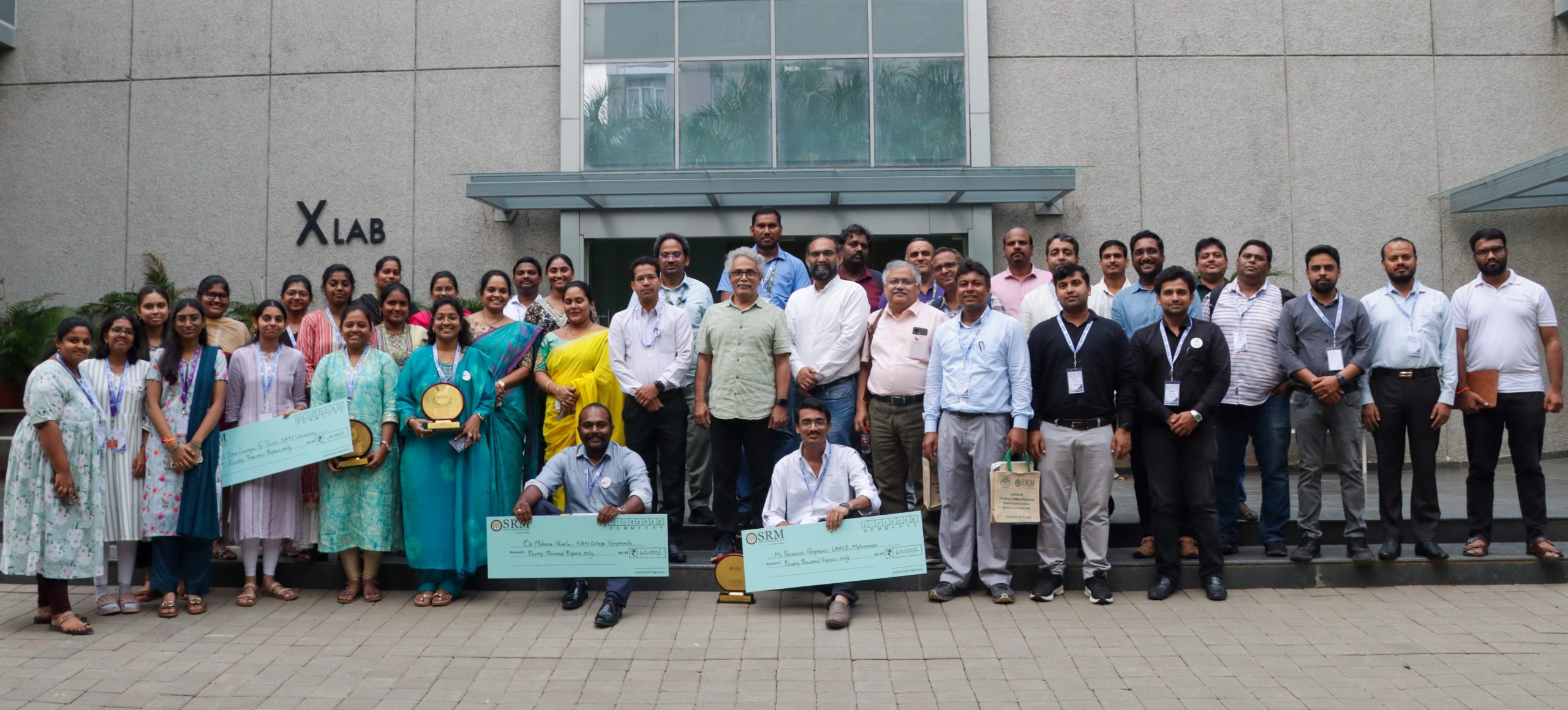
The Chief Guest, Dr Parthasaradhi, delivered an enlightening talk on using the Internet of Things (IoT) in civil engineering foundations, showcasing applications such as thermal integrity profiling for sustainable and reliable infrastructure development.
As part of the symposium, on September 16, 2025, SRM University-AP organised an award distribution ceremony to recognize outstanding contributions under the Best Poster/Innovation in Manufacturing Practices (IMP) projects. The awards were conferred upon:
- Dr Mohana Sheela – Ph.D. Startup Category
- Mr Pavanesh Gogineni – Undergraduate Category
- Ms Sree Laasya & Team – Postgraduate Category
This recognition highlighted the dedication, creativity, and problem-solving approach of young innovators and researchers, further motivating the engineering community to pursue impactful solutions.
The two-day symposium continues to inspire collaborations, foster innovation, and strengthen India’s vision for global leadership in semiconductors, quantum technologies, and sustainable manufacturing practices.
- Published in Departmental News, News, SEAS
Prof. Sasee Pallikadavath Visits SRM University-AP to Explore Research Collaborations in Public Health
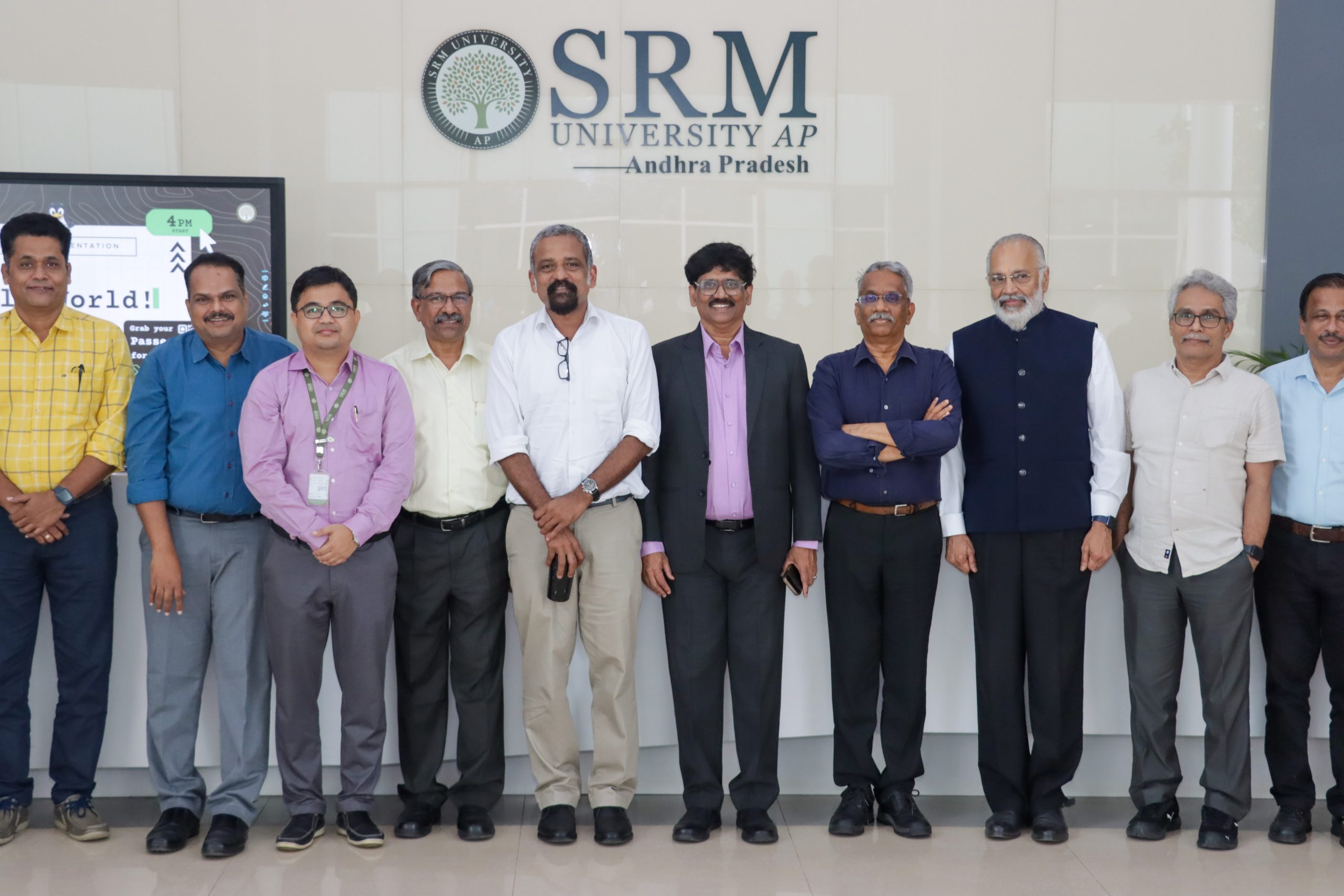 SRM University-AP had the privilege of hosting Prof. Sasee Pallikadavath, Professor of Demography and Global Health at the University of Portsmouth, UK. A globally renowned scholar, Prof. Pallikadavath is widely recognised for his expertise in low fertility, health systems, health inequalities, family planning, women’s autonomy and well-being, HIV and AIDS research.
SRM University-AP had the privilege of hosting Prof. Sasee Pallikadavath, Professor of Demography and Global Health at the University of Portsmouth, UK. A globally renowned scholar, Prof. Pallikadavath is widely recognised for his expertise in low fertility, health systems, health inequalities, family planning, women’s autonomy and well-being, HIV and AIDS research.
The visit was organised to create meaningful academic exchanges, explore collaborative opportunities, and deepen engagement in areas of public health research and capacity building.
With over two decades of impactful research, Prof. Pallikadavath has worked extensively across India, Indonesia, several African nations, and the UK. His projects range from demographic health surveys and fertility research to international migration studies and health policy evaluations. His work has been instrumental in shaping perspectives on traditional family planning methods, maternal and child health, and women’s empowerment in developing countries.
Prof. Pallikadavath has also led multi-country projects funded by prestigious organisations such as the Medical Research Council (UK), Bill & Melinda Gates Foundation, and the British Council. His studies have addressed implementation research, migration, antibiotic misuse, and innovative AI-driven decision support systems in healthcare.
During his visit, Prof. Pallikadavath engaged with the Deans, faculty, researchers, and Ph.D. scholars of SRM University-AP. He emphasised the importance of interdisciplinary research—bringing together social sciences, health systems, computer science, and public policy to tackle contemporary global health challenges.
He also shared insights from his ongoing projects, including:
- Revisiting fertility decline in India with a focus on Andhra Pradesh
- Developing AI-assisted tools for antibiotic prescription monitoring
- Cross-country studies on sexual and reproductive health policies
- Exploring migration trends and their socio-economic implications
His discussions highlighted the potential of collaborative research between SRM University-AP and international institutions, particularly in public health innovation and global demographic studies.
The session concluded with a roadmap to pursue joint grant applications, capacity-building workshops, and faculty-student collaborations. Prof. Pallikadavath’s visit has laid the foundation for strengthening SRM University-AP’s global research footprint in areas of health systems, population studies, and sustainable development goals (SDGs).
- Published in Departmental News, News
“Phy-Spark 3.0” – Igniting a Passion for Astrophysics
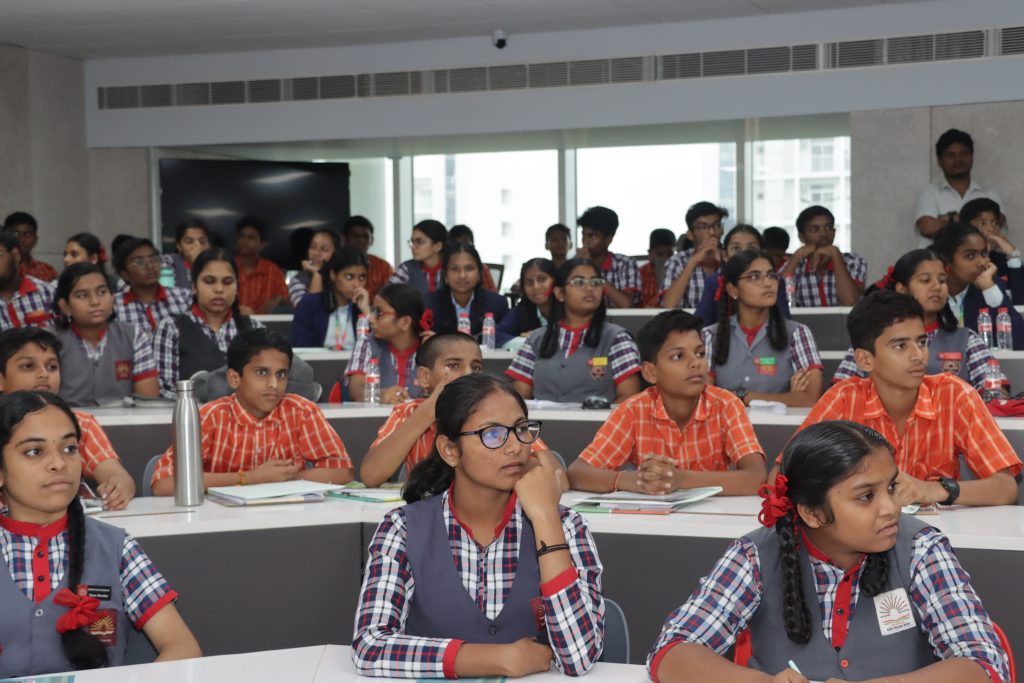
SRM University-AP hosted Phy-Spark 3.0: Stars, Scopes & Spacetime on September 13, 2025, as an outreach initiative for school students. A combination of lectures, experiments, demonstrations, and interactive sessions took place throughout the day-long programme introducing young students to the exciting fields of physics and astrophysics. 120 students from Geethanjali School, Kunchana, K V School, Nallapadu and Vijetha School, Guntur participated in the programme.
A public lecture delivered by Dr Shivaraj Kandhasamy, renowned scientist from the Inter-University Centre for Astronomy and Astrophysics (IUCAA), Pune, on the Detection of Gravitational Waves by LIGO was the highlight of the programme. Dr Kandhasamy explained how gravity shapes the fabric of spacetime and introduced the concept of gravitational waves. He walked through the historic Michelson-Morley experiment, the design and functioning of the Laser Interferometer Gravitational-Wave Observatory (LIGO), and the challenges of detecting such incredibly faint signals. The lecture also covered landmark detections, including gravitational waves generated from black hole mergers and binary neutron star collisions.
Expert faculty members Dr Gangireddy Salla, Dr Ashmita Das, and Dr Krishna Prasad Maity from the Department of Physics of SRM AP delivered academic sessions on several intriguing topics such as Telescope: Fundamentals and Designs, Binary Star Systems and General Theory of Relativity. The lectures were followed by a lab visit and live demonstrations of telescopes, binary star experiment using LED bulbs, Michelson interferometer etc., and an interactive Q&A session facilitating hands-on experiential learning on astronomical observations, scientific equipment, and the application of ideas they had learned in theory.
The programme conducted to ignite the spirit of learning physics among the budding minds of school students was a resounding success. Through Phy-Spark 3.0, SRM University-AP successfully made complex concepts in physics and astrophysics accessible to school students providing them with a glimpse of how physics is applied in real-world research environments. The event was coordinated by Dr Pranab Mandal, Dr Gangireddy Salla and Dr Soumyajyoti Biswas of SRM AP.
- Published in Departmental News, News, Physics News
Beyond the Fabric: Weaving Sustainability into the Handloom Sector
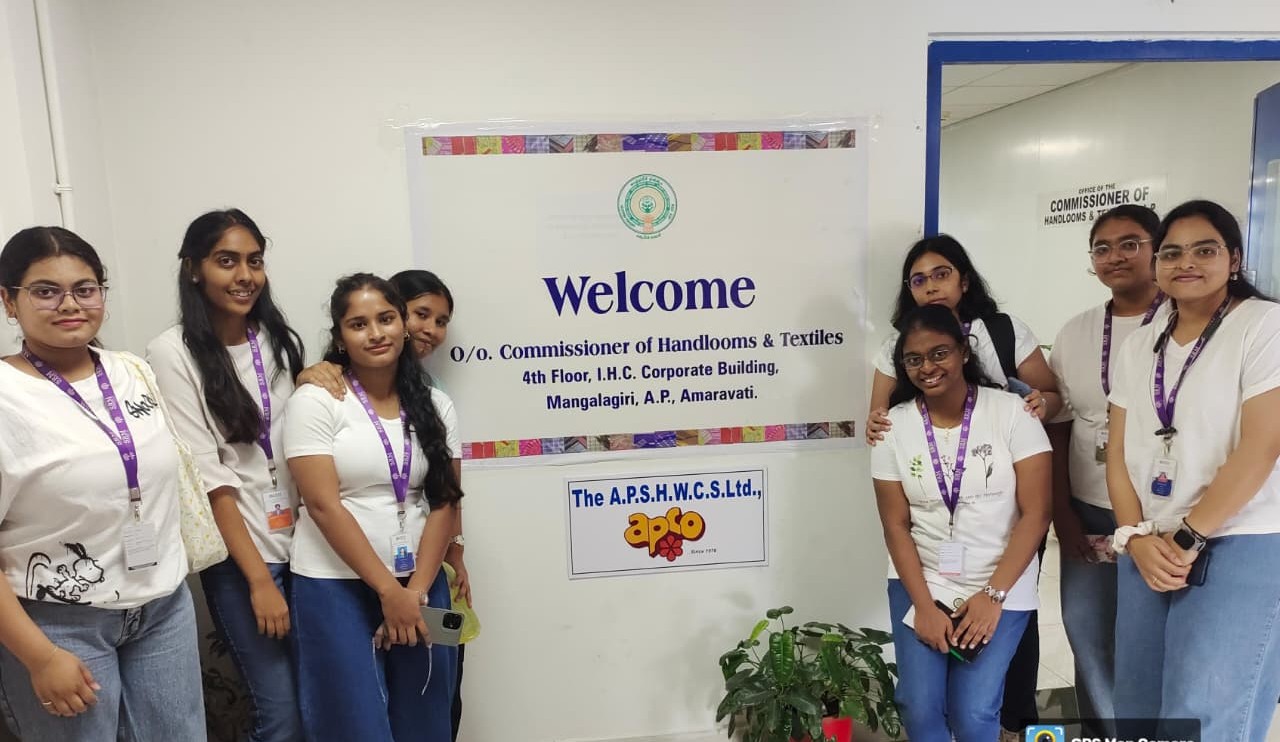 In an era where fast fashion dominates, students of Paari School of Business, SRM University-AP, took a step towards understanding the roots of sustainable fashion. As part of a community outreach and engagement initiative, the 2nd-year BBA & B.Com students visited the Handloom Weavers’ Sheds in Mangalagiri .
In an era where fast fashion dominates, students of Paari School of Business, SRM University-AP, took a step towards understanding the roots of sustainable fashion. As part of a community outreach and engagement initiative, the 2nd-year BBA & B.Com students visited the Handloom Weavers’ Sheds in Mangalagiri .
The field visit was enriched with valuable insights from Ms Vanaja, Assistant Director, O/o Commissioner of Handlooms & Textiles, Government of A.P., and guided support from Assistant Development Officers Mr Prithvi and Ms Jayalakshmi, along with Department staff member Ms Padmavathi.
During the visit, the students: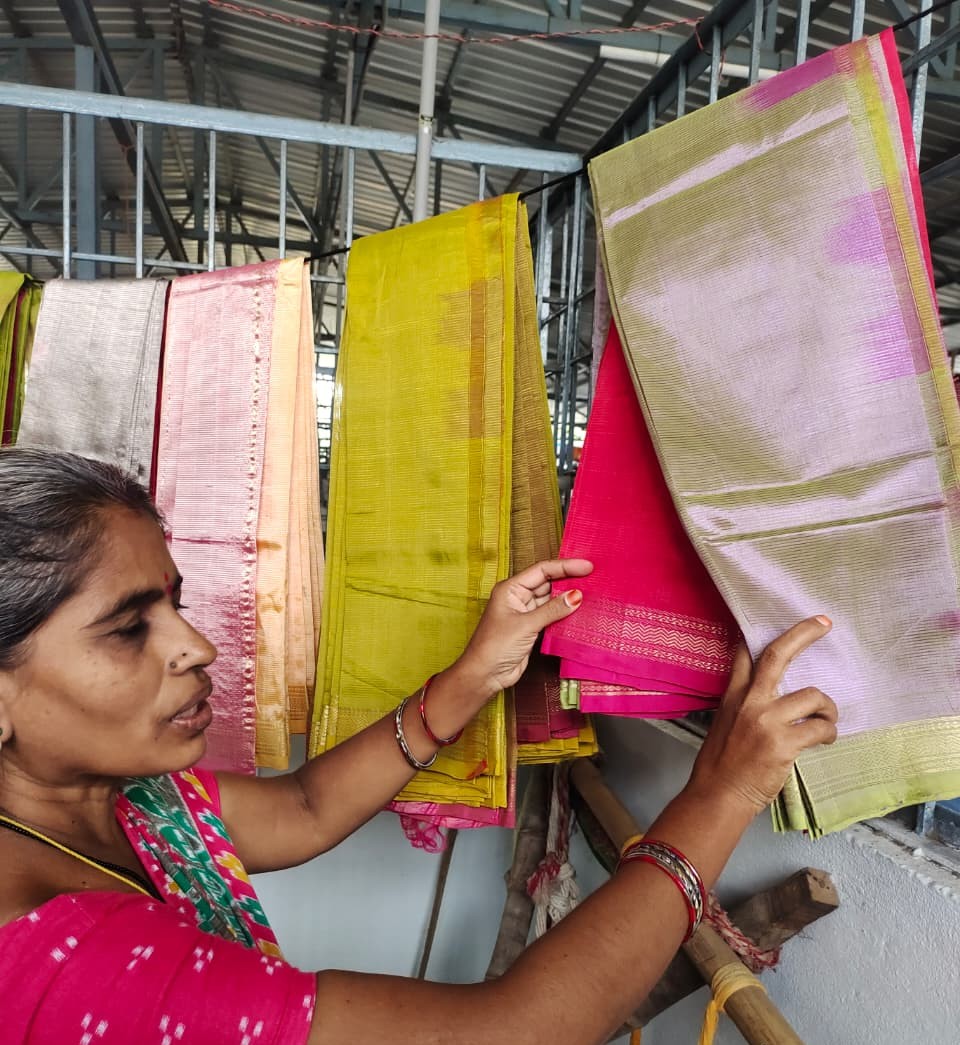
- Explored the operational aspects of the handloom weaving industry
- Understood the working conditions and livelihood challenges of artisans
- Identified gaps in forward and backward linkages within the sector
- Reflected on sustainable practices and solutions that align with UN Sustainable Development Goals 8 (Decent Work & Economic Growth) and 12 (Responsible Consumption & Production)
This hands-on engagement offered students more than just academic knowledge – it allowed them to witness resilience, creativity, and heritage in action, while inspiring them to rethink how sustainability can be woven into business and society.
Faculty Mentor:
Dr Nagalakshmi MVN., Assistant Professor, Paari School of Business
Project Team (Students):
Ankitha D, Ramya Sri Appana, Sahithi Dasari, S Bola Sankari, Priya Vellala, Diptimayee Pradhan, Manvitha Reddy G, Anjani Y
- Published in Departmental News, News, Paari Current Happenings




